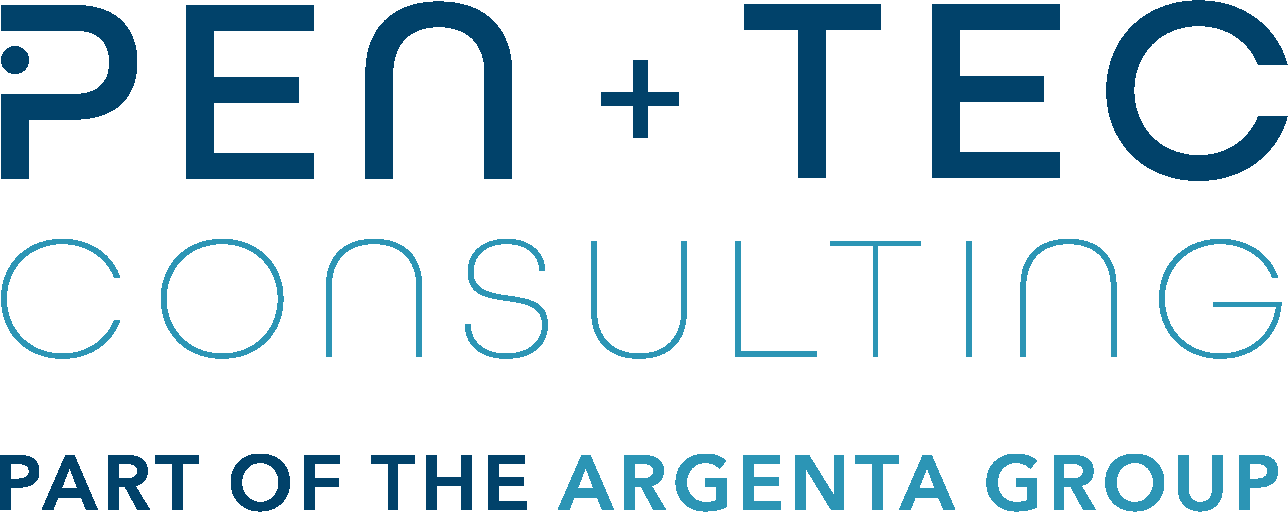INDUSTRY NEWS
SUBSCRIBE TO OUR NEWSLETTER
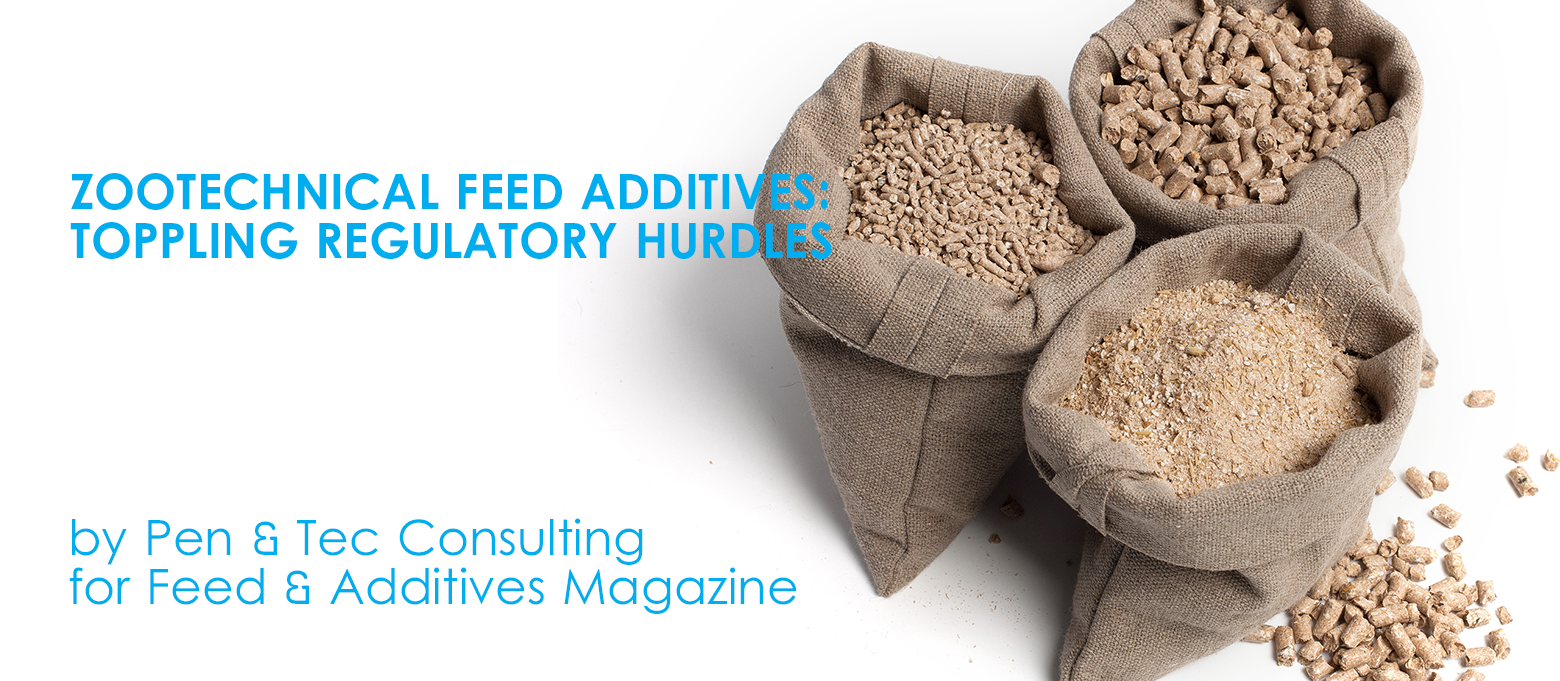
Zootechnical feed additives: toppling regulatory hurdles
Zootechnical feed additives are growing in popularity thanks to their benefits for animals, animal owners, and feed additive developers alike. But bringing such products to market in Europe demands that companies deftly navigate complex and changing regulations. Here, we discuss how developers can best overcome regulatory challenges for a streamlined path to market, and faster return on investment.

Overcoming regulatory hurdles for plant-based feed additives
The growing animal feed additives market combined with surging interest from consumers in plant-based products offers a significant opportunity for developers. However, launching such products and maintaining market access involves navigating complex EU and US regulations. Here we explore how developers can successfully and efficiently secure regulatory approval to maximize their return on investment.
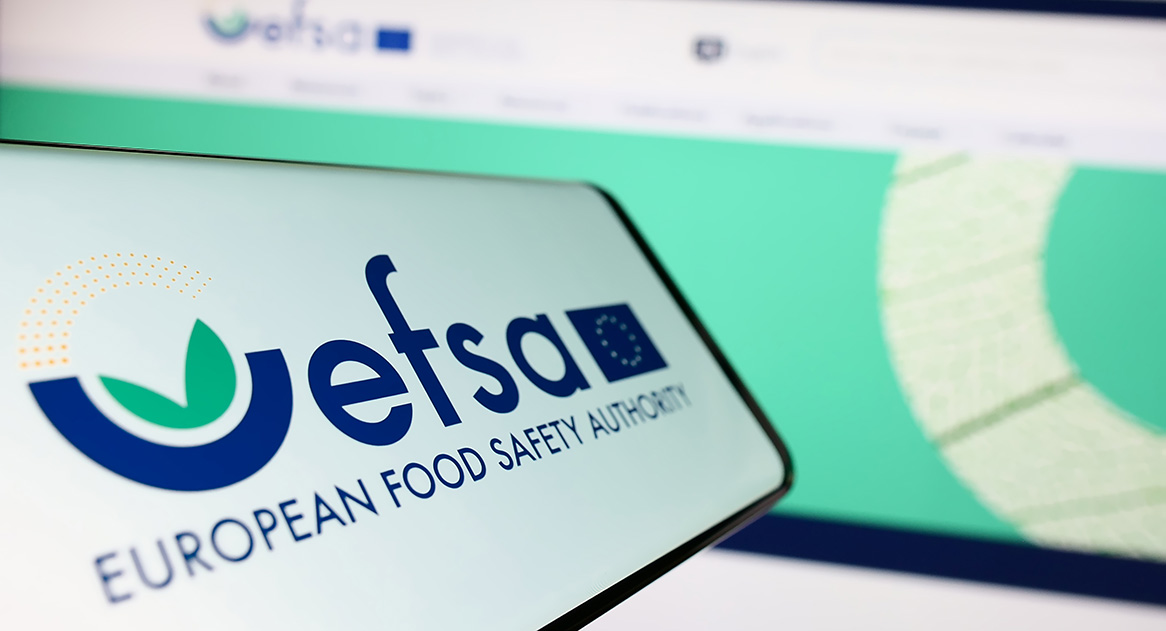
EFSA’s latest updates on practical arrangements for regulated products are now available
After 2 years of experience with Transparency Regulation, EFSA has finally released updates on questions & answers in an effort to help clarify the main obligations of food/feed business operators that must submit food or feed dossiers in the EU.
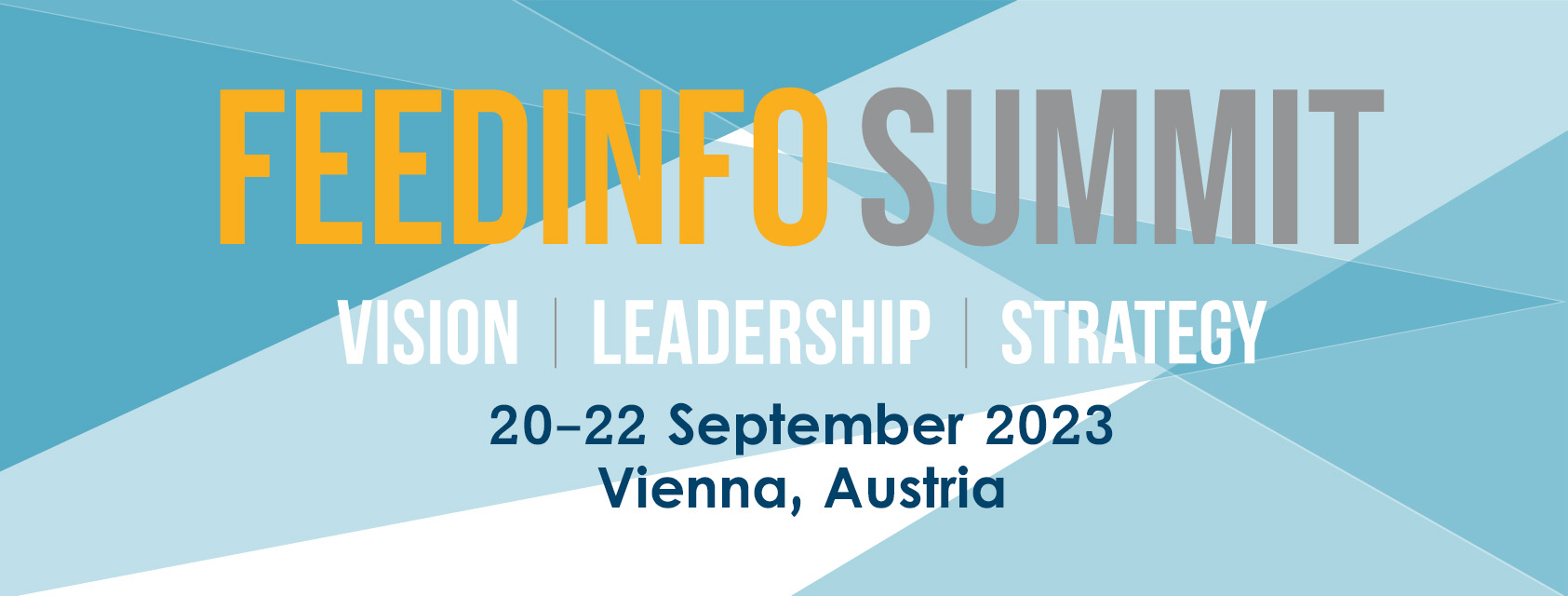
Join Us at the FeedInfo Summit – Unlocking the Future of Animal Nutrition
We are delighted to inform you that Argenta is an official sponsor of the FeedInfo Summit. The event brings together esteemed animal nutrition leaders, market experts, and speakers from various fields to create a collaborative environment for learning and growth.
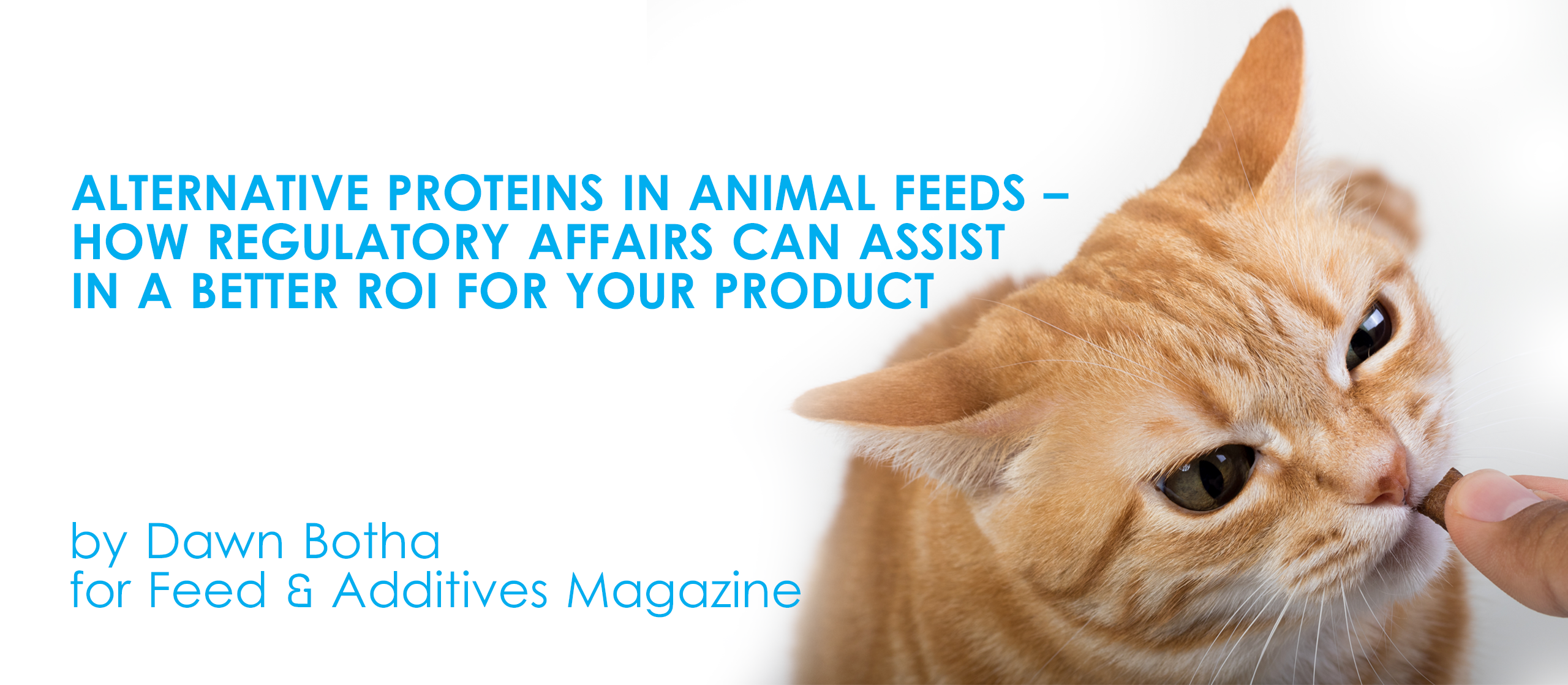
Alternative Proteins in animal feeds – how regulatory affairs can assist in a better ROI for your product
It’s important to understand the regulatory requirements in the EU and the US to ensure that alternative proteins are safe and comply with all laws and guidelines for use in animal feeds. Hiring a regulatory affairs consultant can be highly beneficial in navigating the complex regulatory landscape and can save your company time and resources.
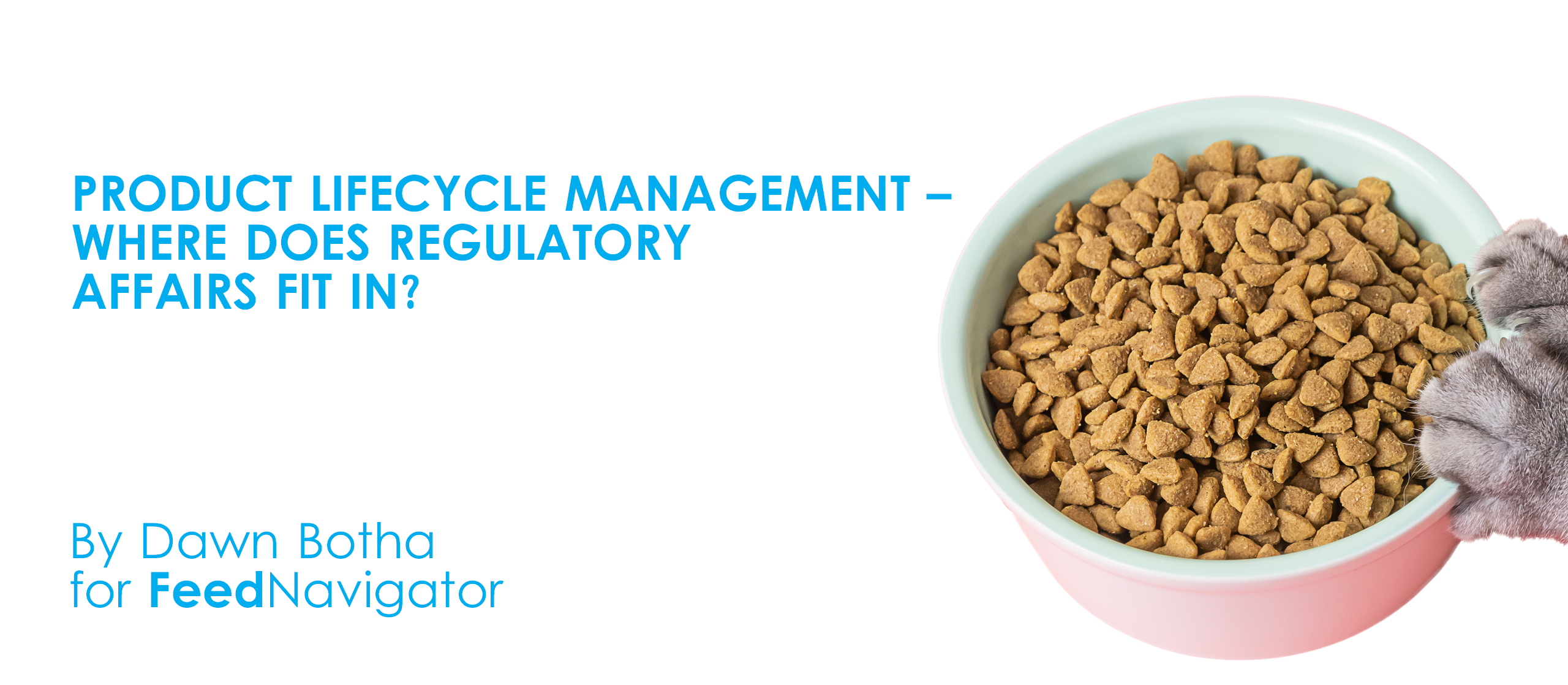
Product lifecycle management – where does Regulatory Affairs fit in?
The use of safe and effective feed additives helps to optimise the growth and health of livestock, prevent disease, and enhance the nutritional value of their products. It can also help to reduce the environmental impact of animal agriculture. By prioritizing food safety in the animal feed industry, we can ensure that the food we eat is of the highest quality and free from harmful contaminants.
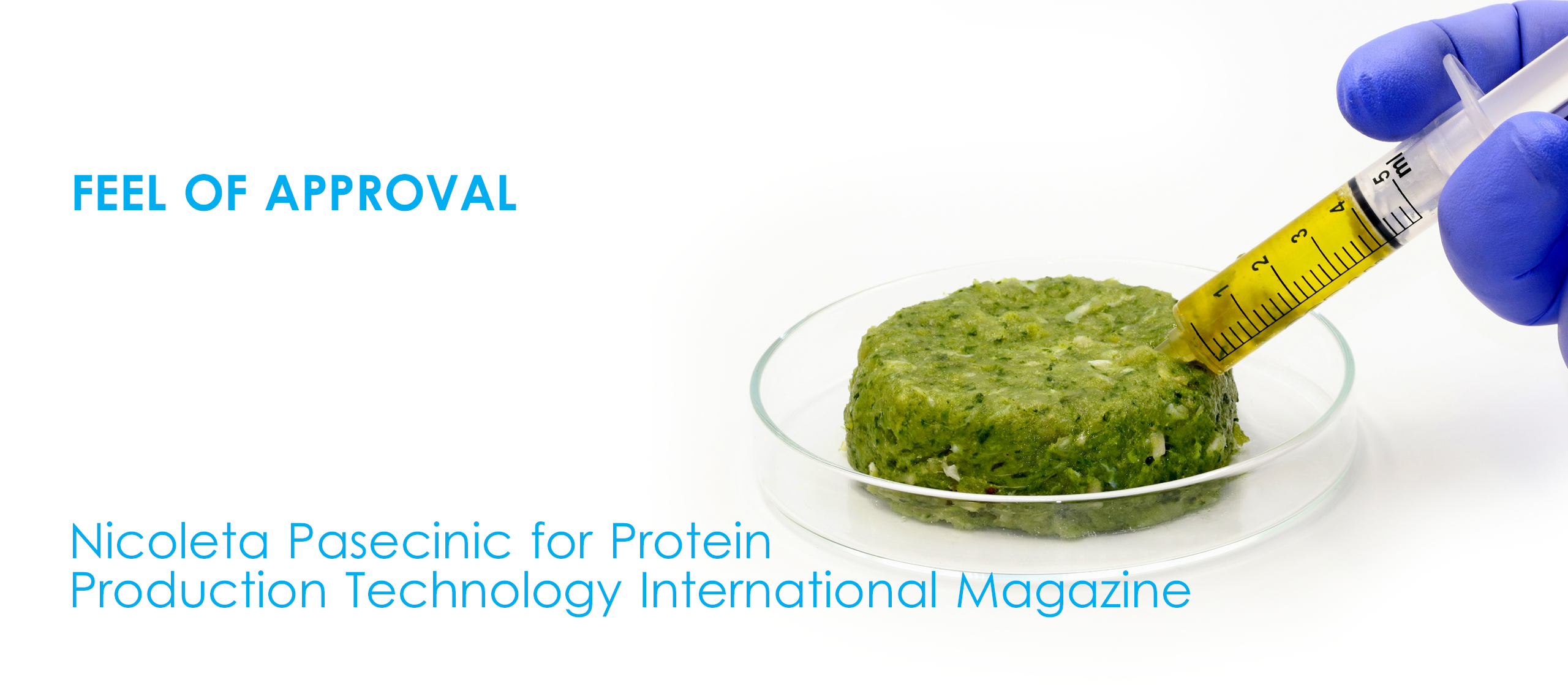
Feel of approval: Nicoleta Pasecinic’s interview for The Protein Production Technology International Magazine
Nicoleta Pasecinic, Senior Regulatory Affairs Manager at Pen & Tec Consulting discusses how the company’ expertise can help clients in alternative proteins achieve faster market access as economically as possible.
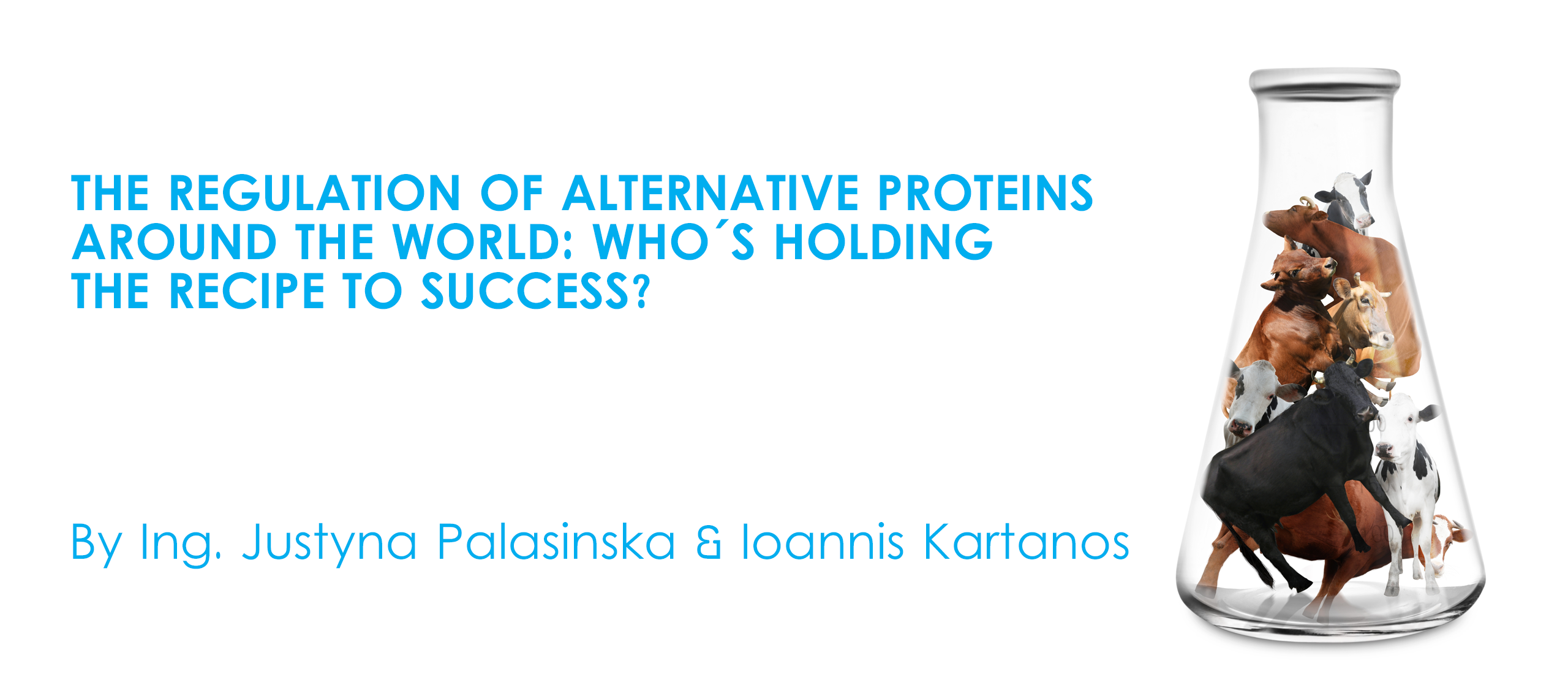
The regulation of alternative proteins around the world: who´s holding the recipe to success?
Nowadays the global food system is facing several challenges such as climate change, food safety, nutritional adequacy, and everyday disruptions of the food supply chain. This undeniably increases the pressure for identification of more sustainable sources of proteins and the acceleration of innovation and product development, resulting in the introduction of a plethora of new alternative protein ingredients and products to the food markets worldwide. Hence, the need for a clear regulatory framework that can accommodate the novelty of these foods as well as the rapid pace of their market entry is evident.
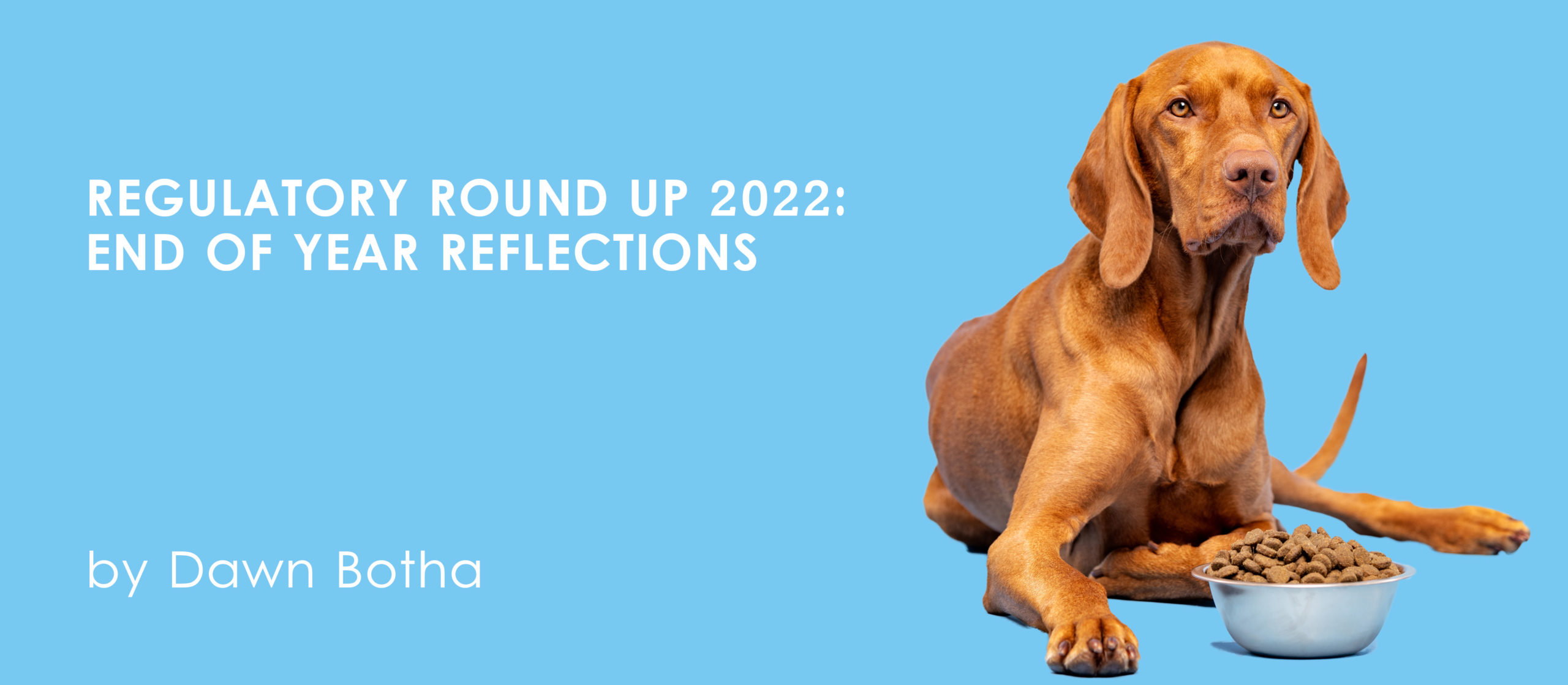
Regulatory round up 2022: end of year reflections
Our team is rested and ready to take on 2023, but first, let us take a moment to reflect on the year that has passed focusing on the highlights of each month.

Argenta acquires Pen & Tec – combined knowledge, experience, and expanded service offerings for customers around the globe
On 6 July 2022, Argenta acquired 100% of the shares of Pen & Tec Consulting S.L.U. This is exciting news as both these companies have a shared mission of working in close partnership with customers by providing high-quality services to assist in taking their products to market.
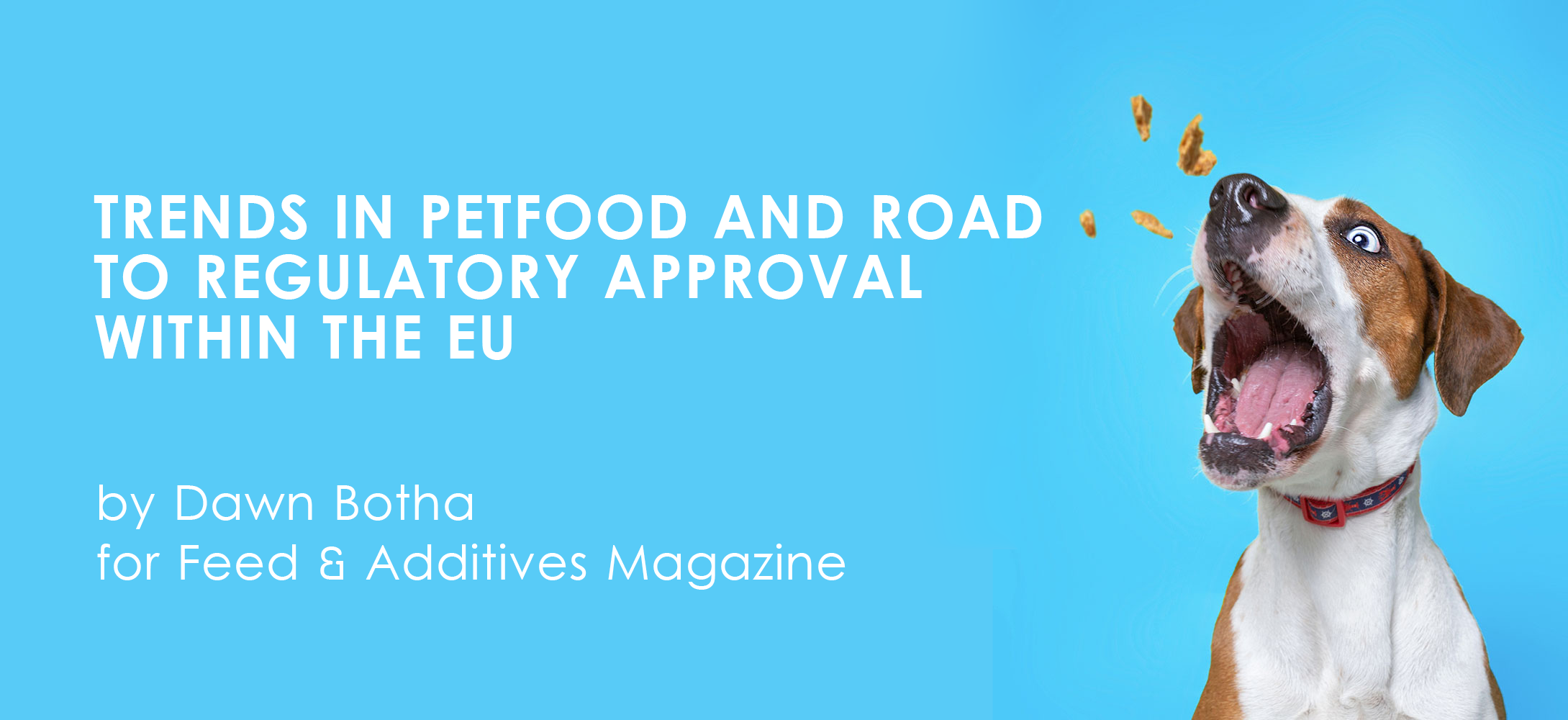
Trends in petfood and road to regulatory approval within the EU
To stay ahead of consumer demands, the pet food industry would need to keep growing. It is estimated that around 30% of global sales are generated in Europe alone. The continent is considered one of the industry leaders in pet food and related products. The pet food industry remains an exciting space within the animal feed industry and the future looks bright for pets in terms of new and innovative products on the horizon.

Feedinfo Summit – industry focus for the coming years
The main take aways from the event: a focus on sustainability, overcoming the impact of climate change, addressing the perceptions, misinformation of the public and working in collaboration with alternative protein producers, instead of against them. A poll ran during one of the sessions and the results showed that 41% of companies attending the event saw alternative protein as an opportunity to grow.

Non-conventional alternative proteins in feed regulations in the EU. Is it the answer to less soymeal in animal feed?
Protein is probably one of the most expensive raw materials needed in the production of animal feed and very often imported, which raises the cost of the finished feed tremendously. Proteins used in animal feeds are ranked according to the digestibility as well as their amino acid profile. Superior proteins will be easily digestible and contain all the essential amino acids needed by the animal to support all biological processes.

Summary of the guidance update released by the Singapore Food Agency
On 26 September 2022, the Singapore Food Agency released an updated version of their guidance document. Our Technical Marketer, Dawn Botha has taken the time to highlight the important changes for our customers.

The Future of Food – regulatory challenges the industry is facing
“Singapore, Israel and the US are biggest to lead the change in conversations on the regulatory pathways for the entry of alternative proteins into their markets” – Nicoleta Pasecinic ANutr, Regulatory Affairs Manager at Pen & Tec Consulting shares her thoughts after attending Future Food Tech in London, September 2022.
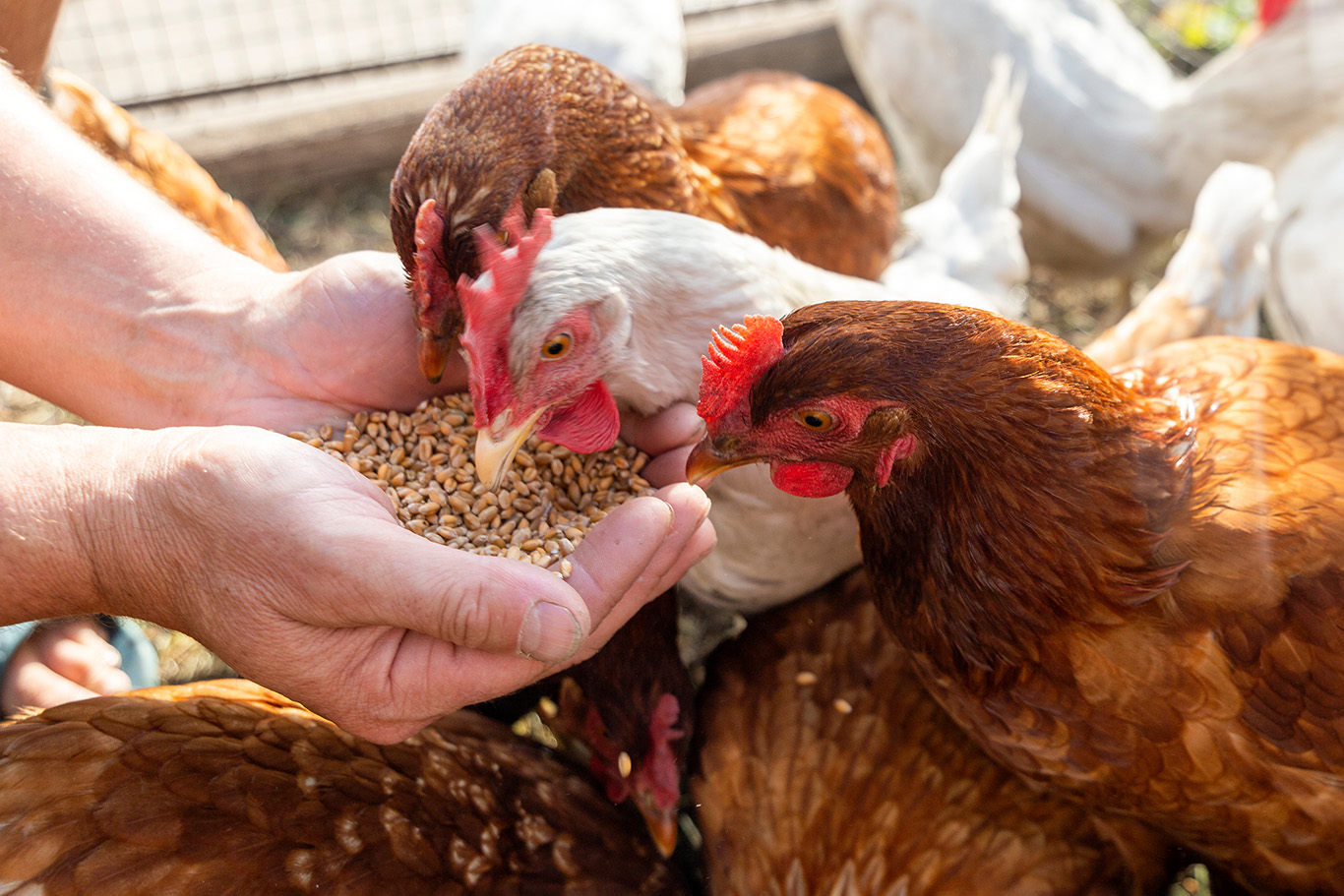
Guidance on how to register a mycotoxin binder
A wide variety of materials are available that can bind to mycotoxins in feed. These products help reduce the toxicity of the exposure to the animals consuming the feed. The authorisation guidelines supplied by EFSA will assist companies who are producing these new mycotoxin binders to plan and execute scientific studies required by EFSA, in the correct way, to ensure authorisation is granted. It is an area in which a lot of research and development is invested into finding products with the desired characteristics, and more products are needing registration on a regular basis.
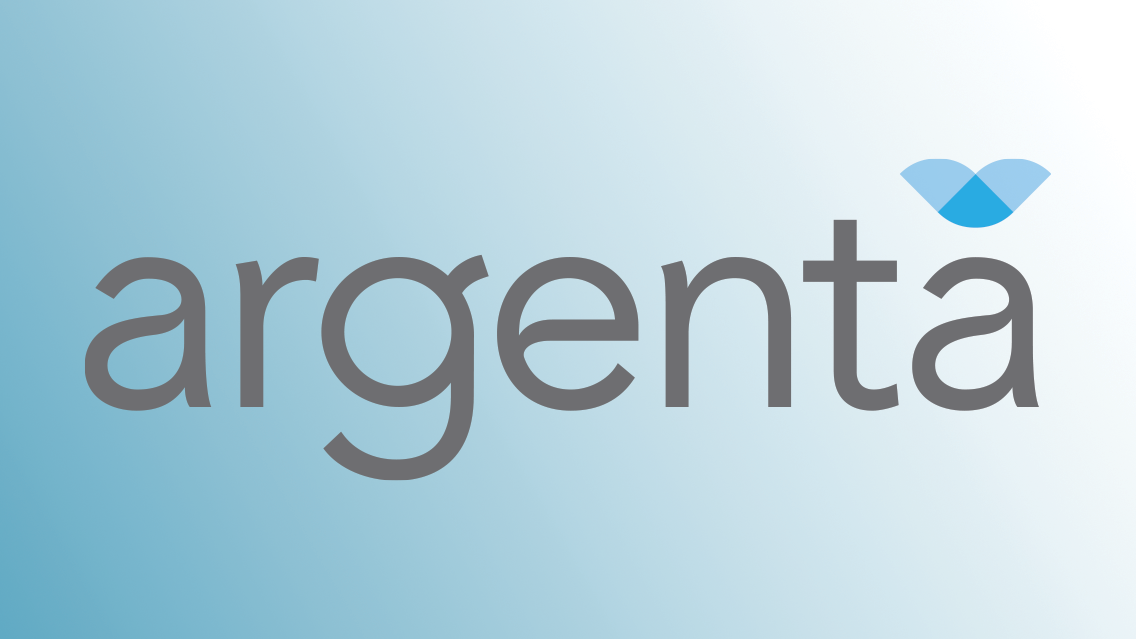
Pen & Tec Consulting becomes part of Argenta to offer clients a wider range of global capabilities and product development services
Pen & Tec Consulting is pleased to announce that we will be becoming part of Argenta, the only combined global contract research organisation (CRO) and contract development & manufacturing organisation (CDMO) dedicated to animal health.

New opportunities and challenges for novel protein authorisations
The appetite for alternative proteins as a substitute to animal proteins is increasing. This is evidently nourishing numerous developments with the innovative use and mixing of plant, algae, insect ingredients through innovative techniques, such as precision fermentation and cell differentiation. To make the research and development worthwhile it is essential to adequately grasp and manoeuvre the regulatory pathway for bringing innovative foods to the actual tables of consumers. This article outlines the legal framework applicable to alternative protein products in the European Union and USA.

Alternative proteins in the EU – regulatory roundup for 2021
In the past year, an increase in EFSA Scientific Opinions related to the protein alternative space was observed. Two plant proteins and three insect proteins were evaluated as novel foods in the EU. Pen & Tec has reviewed the EFSA Opinions and extracted the most note-worthy information that would be useful for applicants wishing to submit novel food applications for protein products.

EU Transparency Regulation – What have we learned?
The new EU regulation on transparency entered into force in September 2019 and has applied since 27th March 2021. It has brought significant changes to the approval process for regulated products such as feed additives. We interviewed Pen & Tec´s Transparency Regulation (TR) expert, Dr Eliana Henriquez and asked her to share her thoughts.

Laura Payo and Dr Monste Cerrato celebrate 10 years at Pen & Tec
We are very excited to announce that two of our employees have crossed yet another milestone in the history of Pen & Tec Consulting. It’s been 10 years since Laura Payo Lewis our Regulatory Affairs Director and Dr Montserrat Cerrato Sánchez one of our Senior Regulatory Managers joined the company, and to celebrate this we decided to ask them some questions about how Pen & Tec has changed over the past 10 years – read in our interview.

How will the EU Transparency Regulation affect feed & food regulated products?
The Transparency Regulation will affect all regulated products covered by the General Food Law (Regulation (EC) No 178/2002) that require an authorisation before entering the market, such as feed and food additives and novel foods, among others. These products must undergo a risk assessment performed by the European Food Safety Authority (EFSA) who determines if, based on the scientific studies provided by the applicant, the product is safe and efficacious. For applications submitted after the 27thMarch 2021, the Transparency Regulation will change several aspects of this assessment, from how studies are reported to the authorities to the type of data that can be treated as confidential.
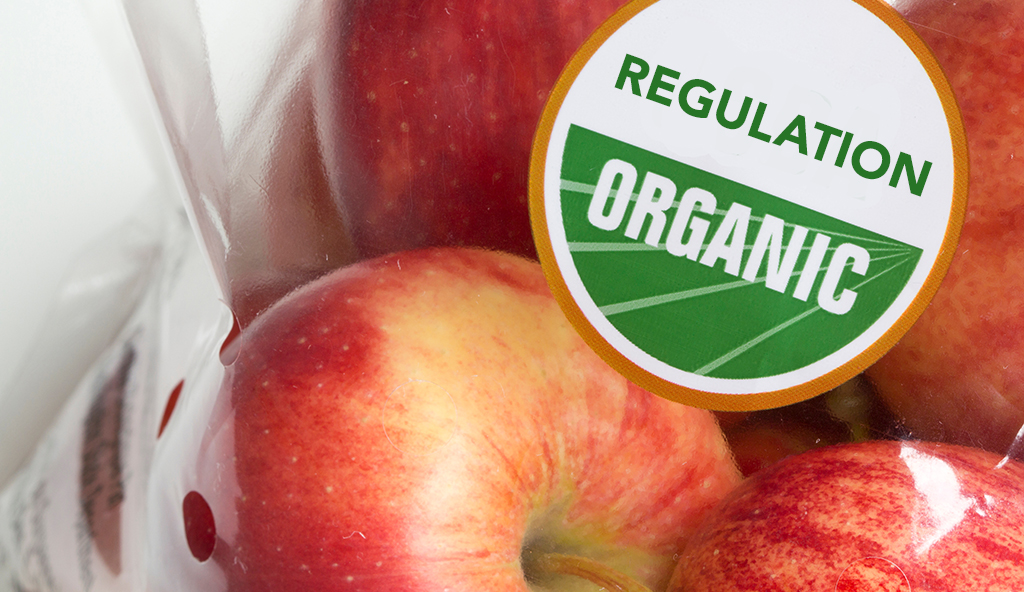
The new EU organic regulation is coming – are you ready?!
Organic Regulation 834/2007 will be repealed and replaced by Regulation 2018/848 on organic production and labelling of organic compounds. This Regulation aims to harmonize the rules related to organic marketing within the EU and between third countries. What is the new organic regulation? Read about it in our article.

Updates on the EU novel food consultation process
The novel food consultation procedure is not obligatory, but FBOs do need to determine the novel status of their products before placing on the EU market. If you are not sure about the novelty of your food, you can follow the novel food consultation procedure. Read our article for more details.

Biopesticides and biostimulants provide opportunity for sustainable agriculture, but how are they regulated in the EU?
Biostimulants and biopesticides are two categories of biological products that are currently advancing as a response to reduce the amount of chemicals used in agriculture. These products can be very similar in terms of composition. However, both types of products are regulated very differently in the EU. Biopesticides are regulated on EU level and fall under the scope of Regulation (EU) No 1107/2009 regulating PPPs. They are evaluated in a two-step process.

Sustainable nutrition: Health and immunity will be very high on the agenda
Dr Hannah Lester, Scientific Director, Pen & Tec, shares her insight into the future of sustainable, healthy and nutritional food and ingredients and alternative protein sources – read interview for Food Matters.

Update: What do the changes to the Lactobacillus taxonomy mean to you & your business?
Last week, a global group of scientists published a paper announcing the formal split of the genus into 25 different genera. This split will introduce novel genera & will lead to a significant amount of name changes for bacteria that were previously identified as part of the genus Lactobacillus.

E-submission of regulated product applications through internet-based software
In order to ensure business continuity, EFSA has decided to allow companies and institutions to submit applications electronically via Internet-based software.

COVID-19 & the authorities – how does it effect the work?
For those of us lucky enough to be able to work from home, it is business as usual for the time being, but what does it mean for your feed or food product evaluations and what is the situation with regards to administrative procedures and deadlines within the European Food Safety Authority (EFSA), the European Commission (EC) and the Food and Drug Administration (FDA) in the USA?
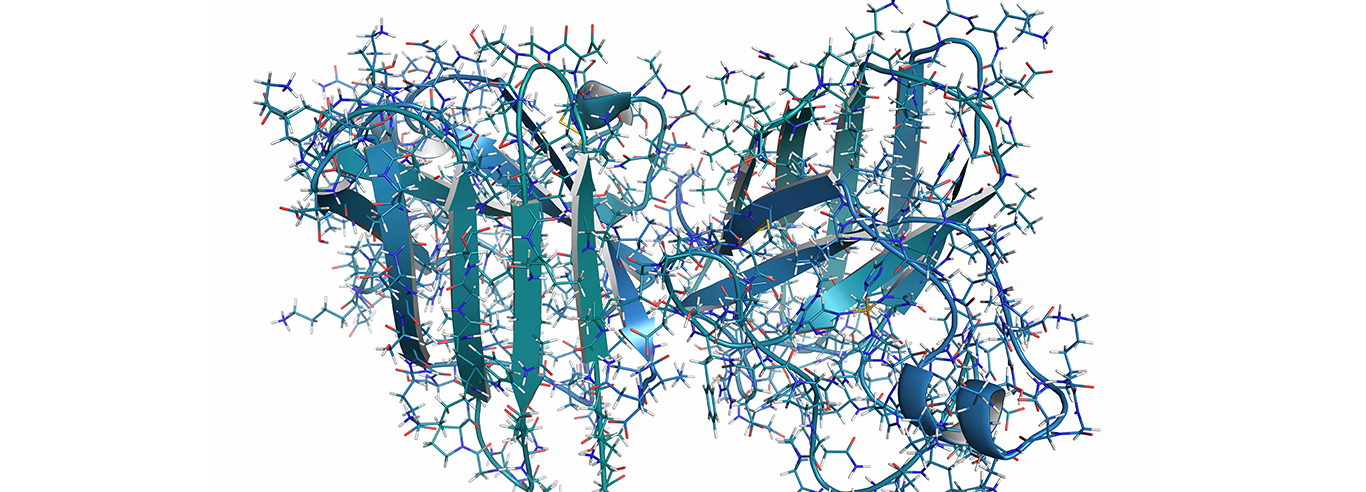
Important regulatory updates on joint dossiers for food enzymes
Last week, EFSA announced important updates to the way that joint food enzyme dossiers will be evaluated moving forward.

In-Ovo Nutrition: a review
Adding nutrients when the chicken is still in the egg can increase hatching weight, growth performance, and pectoral muscle weight of broiler chickens.
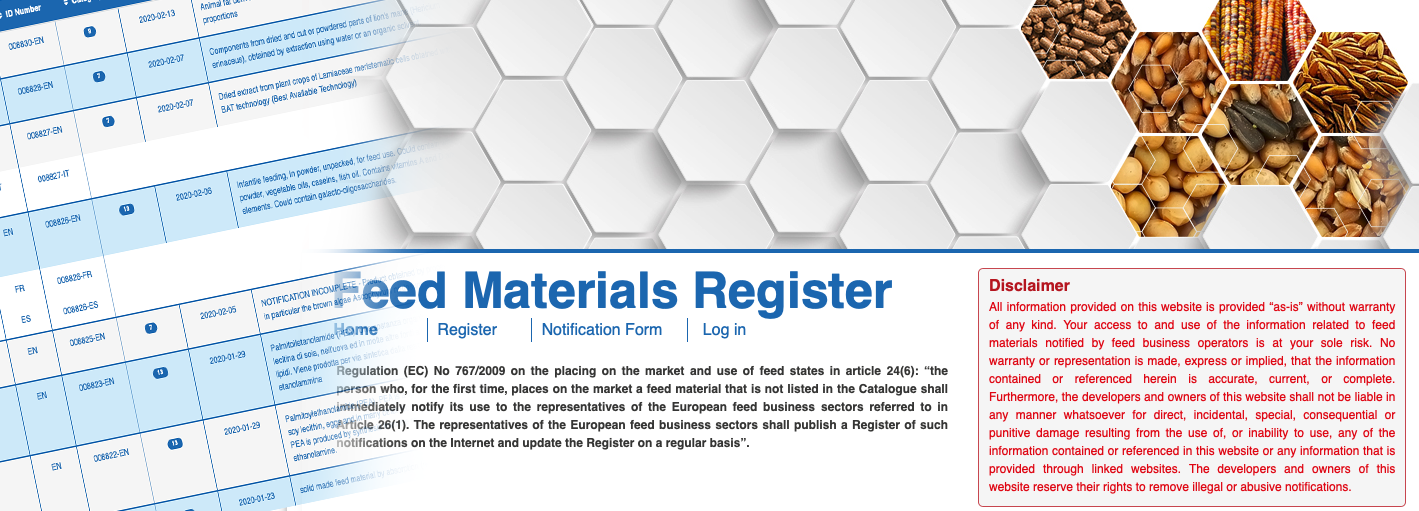
EU Feed material updates
During the latter part of 2019, the FMR was relaunched with a new website. You can now search rejected notifications, which is really useful.

Changes and updates in feed regulation – 2019 overview
Throughout 2019, there have been some interesting changes and trends in the feed additive landscape. In this brief review of the year, we will focus on key updates from EU Regulation and EFSA.

COVID-19 outbreak
As of 5 February, ECDC, the European Centre for Disease Prevention and Control, reports 24.530 laboratory-confirmed cases of COVID-19 infections. The vast majority of these cases (24.329) have been identified in China, while 24 cases have been reported in the EU. 493 people have died from COVID-19 infection, 492 of which in China.
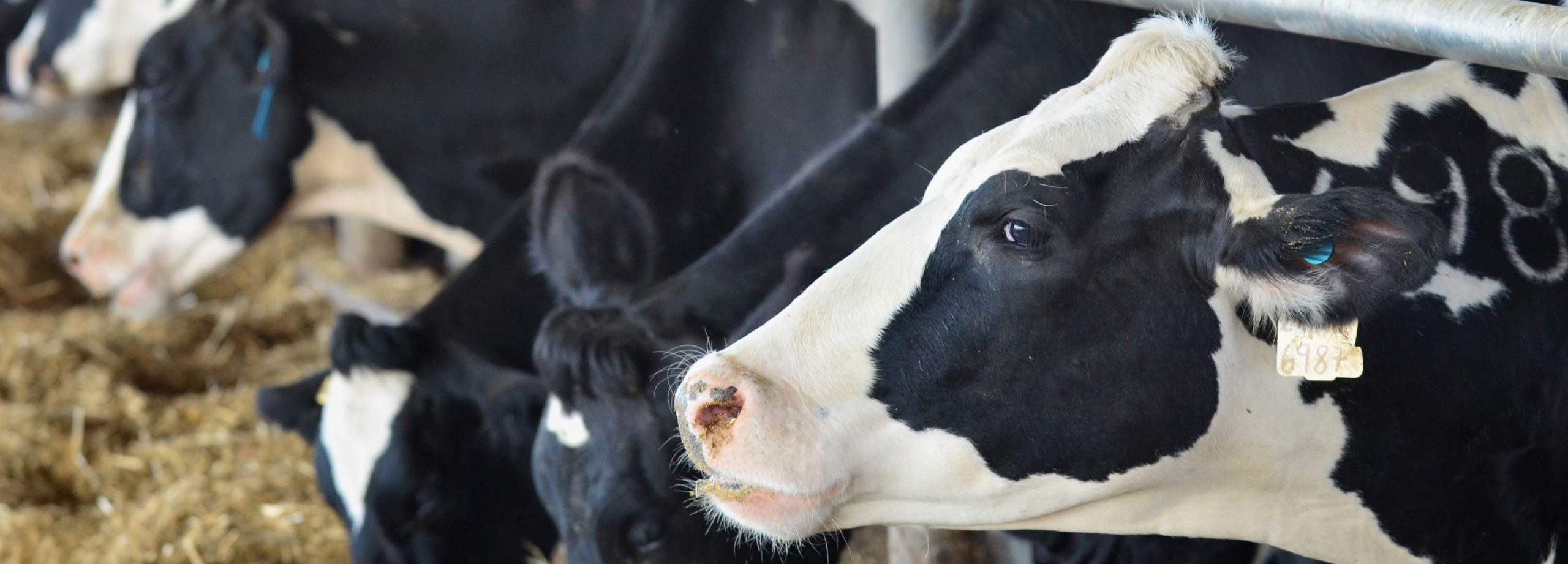
The summaries from the September & November Standing Committee on Plants, Animals, Food and Feed (SCoPAFF) meetings
The summaries from the September & November Standing Committee on Plants, Animals, Food and Feed (SCoPAFF) meetings were released this week. Here is a summary of the key highlights from the Animal Nutrition Committee.

BREXIT effects and global regulatory trends in feed additives
Pen & Tec Consulting, together with Management Forum, every year delivers a practical course on the Regulation Updates on Animal Feed and Feed Additives in the EU, USA and China. The last event that took place in December 2019 covered the requirements and necessary steps to obtain a marketing authorisation, regulatory framework and data required to establish the characterisation, quality, safety and efficacy of the different types of feed additives and one of the hottest topics: BREXIT effects for business operators.

Holders specific authorisations linked to UK-based applicants will be withdrawn by BREXIT date!
On 29 October 2019, the European Council agreed to a further extension of the date for the UK’s withdrawal from the EU. The extension will last as long as necessary and, in any event, no longer than 31 January 2020. DON´T GET CAUGHT SHORT!

CBD containing products in animal feed and food for humans – what is required prior being marketed?
Pen & Tec Consulting is taking part in the panel discussion at Future cannabis strategies Europe 2020 to discuss the regulatory landscape for the CDB industry. CBD-Intel, asked Dr Thierry Kern, Regulatory Affairs Specialist at Pen & Tec Consulting to highlight pecularities of the CBD industry.

What do the changes to the Lactobacillus taxonomy mean to you & your business?
Based on the results of high-throughput whole genome sequence analyses, scientists have concluded that the bacterial genus of Lactobacillus is too heterogenous. Therefore, the taxonomy of this genus has to be rethought and a formal split of the genus is unavoidable. The genus will potentially be split up into 10 to 23 different genera!

Novel Food and Cosmetics data requirements: What are the concerns of the biotechnology industry?
On the 19th November 2019, Nicoleta Pasecinic, regulatory affairs manager at Pen & Tec, delivered a presentation followed by a panel discussion at the European Summit of Industrial Biotechnology (ESIB). The presentation introduced the definition of novel food, explored the steps taken to confirm whether any food is not novel and it highlighted the main actors, procedures and timelines in achieving a novel food authorisation.

Is it easier to register feed additives in the EU or the USA…..? What did the audience at Feed Additives Americas think?
On the 14th November 2019, Dr Hannah Lester, Scientific Director at Pen & Tec delivered an interactive lunchtime workshop at the Feed Additives conference in Miami. We asked the audience if they thought that the EU “holder-specific authorisation” & types of claims encourages innovation & more protection for feed additive businesses compared to the USA? Interestingly, over 70% of the audience thought the EU encourages innovation, but only for large companies that can afford the registration.

Are you ready for renewal – is your feed additive authorisation about to expire?
Feed additive authorisations must be renewed every 10 years. According to current legislation, an application shall be sent to the European Commission and the European Food Safety Authority at least 1 year before the authorisation expiry date. Therefore, it is wise to start preparing your renewal dossier 8 years after product approval. Do you know what is needed for a renewal dossier? Let’s go into detail!

What does the new EU regulation on transparency mean for the food & food industry?
The new regulation on transparency will definitely have a huge impact on the current regulatory framework for the agri-food sector and there will be challenges for the industry and regulators to adapt to the new approach. What are the main highlights? – Our experts prepated a detailed summary.

Do the new feed additive functional groups open the door for innovation in the EU?
Up until recently, there were 24 functional groups however, two new functional groups were adopted this year. Will the creation of these new functional groups lead to more innovative products reaching the market?
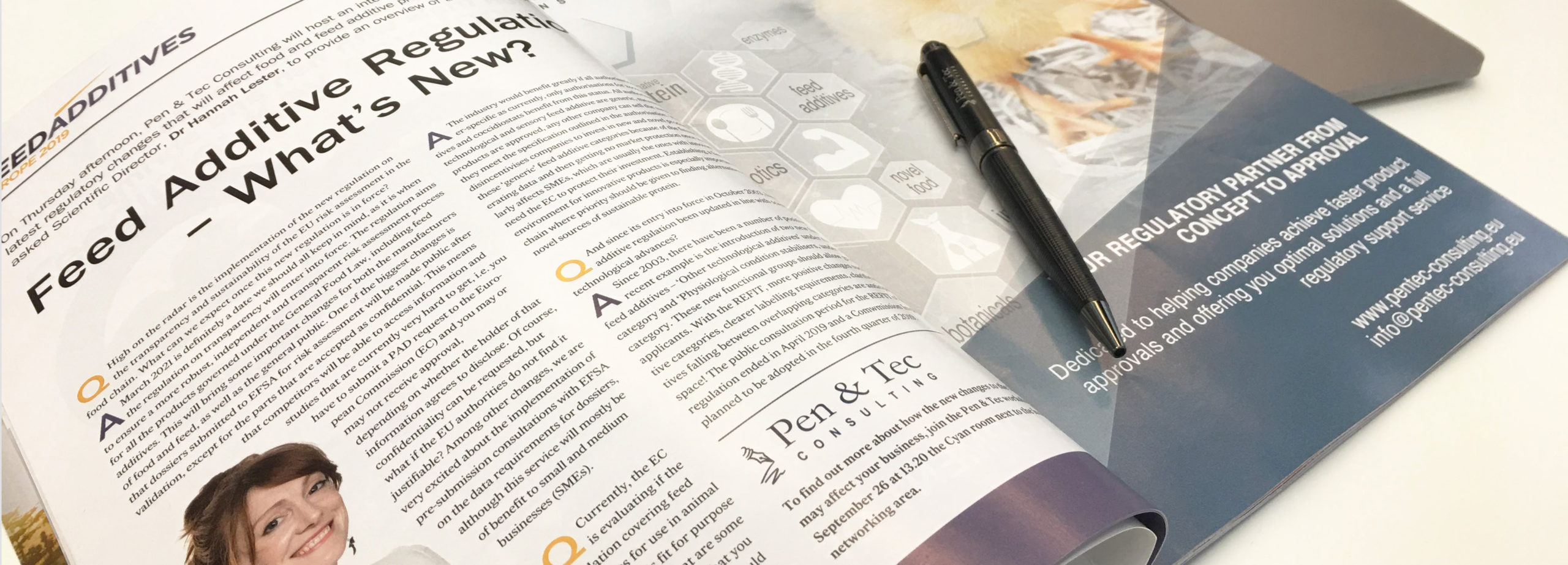
The new regulation on transparency – a game changer for our industry? What did the audience of FeedInfo think?
On 26th September 2019, Pen & Tec delivered an interactive lunchtime workshop at the Feed Info conference in Amsterdam. During the workshop, we asked the audience whether they thought the new EU regulation on transparency would be good or bad for industry. What did the audience of FeedInfo think?
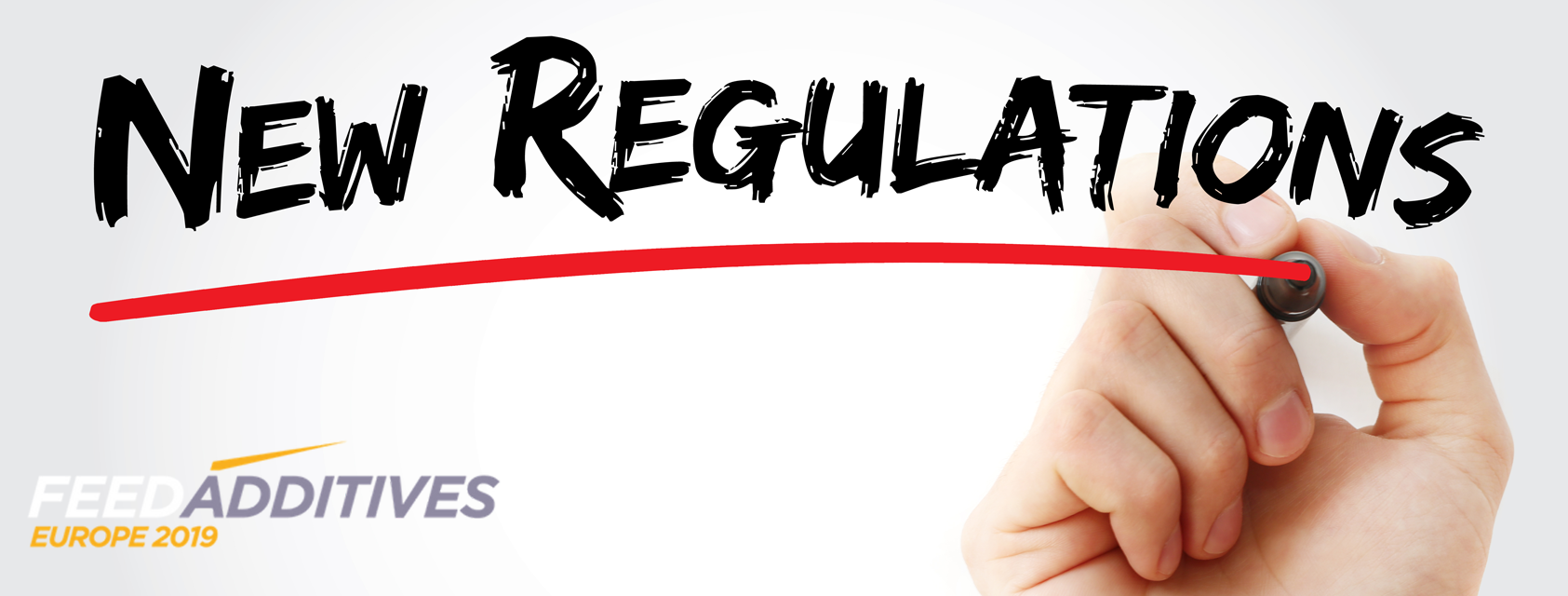
Feed Additive Regulations – what’s NEW?
Pen & Tec Consulting will host an interactive workshop at Feed Additives Europe open to all attendees, to discuss the latest regulatory changes that will affect food and feed additive producers. FeedInfo News Service asked Scientific Director, Dr Hannah Lester, to provide an overview of the most pressing issues.
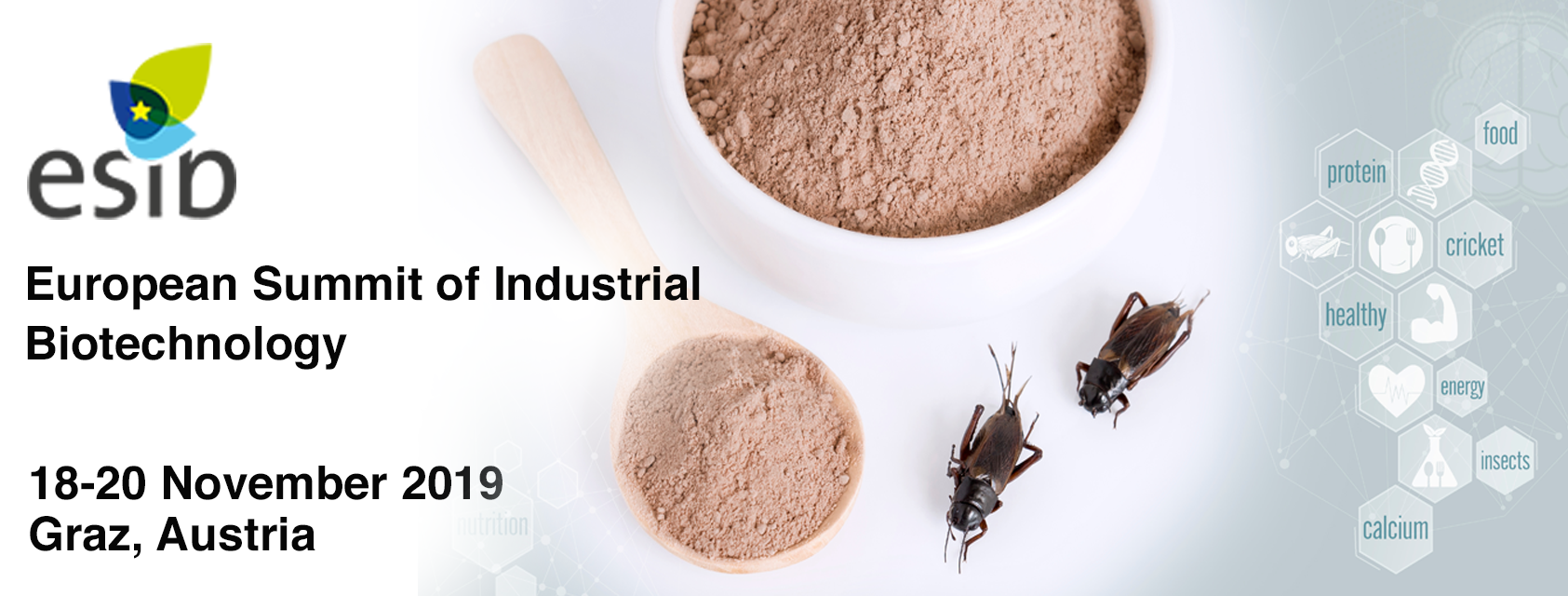
ESIB – European Summit of Industrial Biotechnology
Pen & Tec would be happy to invite you to our presentation and parallel workshop on Novel Food and Cosmetics Ingredients – what are the quality requirements of tomorrow.

Is the current Feed Additives legislation fit for purpose?
What’s going on and what are Pen & Tec’s views on the EC initiative to evaluate the Feed Additives Regulation? Pen & Tec contributed to the public consultation and is now participating in the online stakeholder survey, which will be open until the 7th of September 2019. One of our main priorities is helping to ensure a safe food chain for consumers by shaping a regulatory framework that provides flexibility, transparency, predictability and that supports innovation.
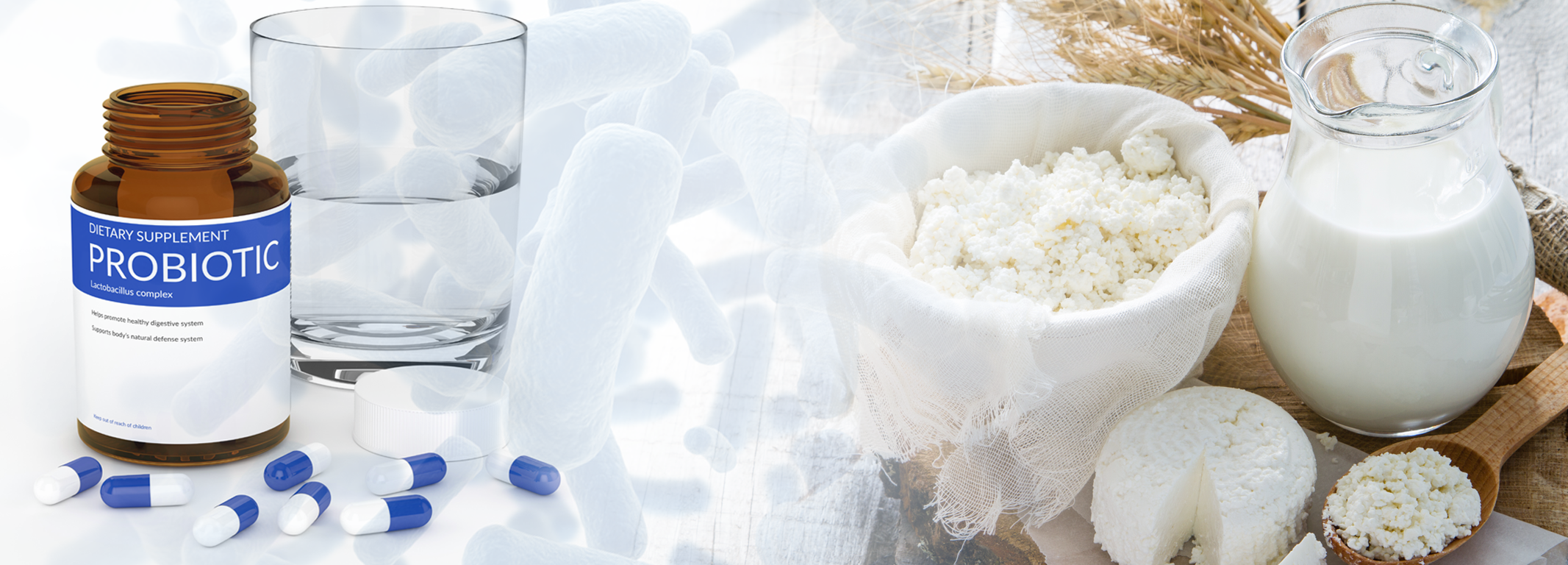
Probiotics and health claims: innovation vs regulation. Vitafoods update
With so many failed attempts, are we likely to see a strain-specific health claim for a probiotic? Check out our TOP tips to increase the likelihood of success.

A meaty issue: is the U.S. prepared to place lab-grown meat on the market?
At first glance, lab-grown meat could be a safe and environmentally friendly alternative to traditional meat, especially for the vegetarian and vegan community. For now, the regulatory landscape and manufacturing costs associated with the production of lab-grown meat represent some of the main challenges facing the food industry before “clean meat” becomes a major player in the US and global markets.

Latest EFSA Guidance on the assessment of the safety of feed additives for the environment replaces the 2008 version: Find out what is new!
The EFSA Guidance on the assessment of the safety of feed additives for the environment, adopted by the FEEDAP Panel on 27 February 2019, has recently been published and has replaced the 2008 version of the document.

Will the revised EU feed additives legislation be fit for purpose?
The European Commission (EU) is still evaluating the legislation on additives for use in animal nutrition as part of its fitness check of general food law, REFIT. Prior to this process, Regulation (EC) No 1831/2003 had not undergone an evaluation since its entry into force in October 2003.

Stakeholder workshop on nanoscience and nanotechnology – what’s new?
Pen & Tec regulatory affairs associate, Mikel Goñi, attended the workshop in Parma, Italy and has put together a summary of the key information discussed at the event.

Impact of the new Novel Food process on applicants
Find out how long it takes to bring a novel food to market under the new regulation and what impact the process has had on recent applications.

PROBIOTA 2019 – Brand Power versus Scientific and Regulatory Armageddon?
The recent PROBIOTA 2019 conference in Copenhagen involved several excellent interactive opportunities to review the latest probiotic science and marketing trends, particularly with reference to the EU Nutrition and Health Claims Regulation. 2 weeks after the event, Pen & Tec can now provide you with an informative summary, highlighting the most important information for you and your company regarding the future of probiotics.

Are you up to date on 2018 EU feed legislation changes?
Are you up to date with all the latest changes made by the EC, EFSA and EURL? Find out what other important changes are in store for 2019 and beyond.

Psychobiotics: regulatory perspective
Over the past decades, the scientific community has been exploring the role of probiotics and their effect in psychiatric illness and other diseases with an important neurological factor, such as Crohn’s disease. It has been hypothesized that intestinal bacteria can produce substances exerting beneficial effects on the nervous system through the brain-gut axis.
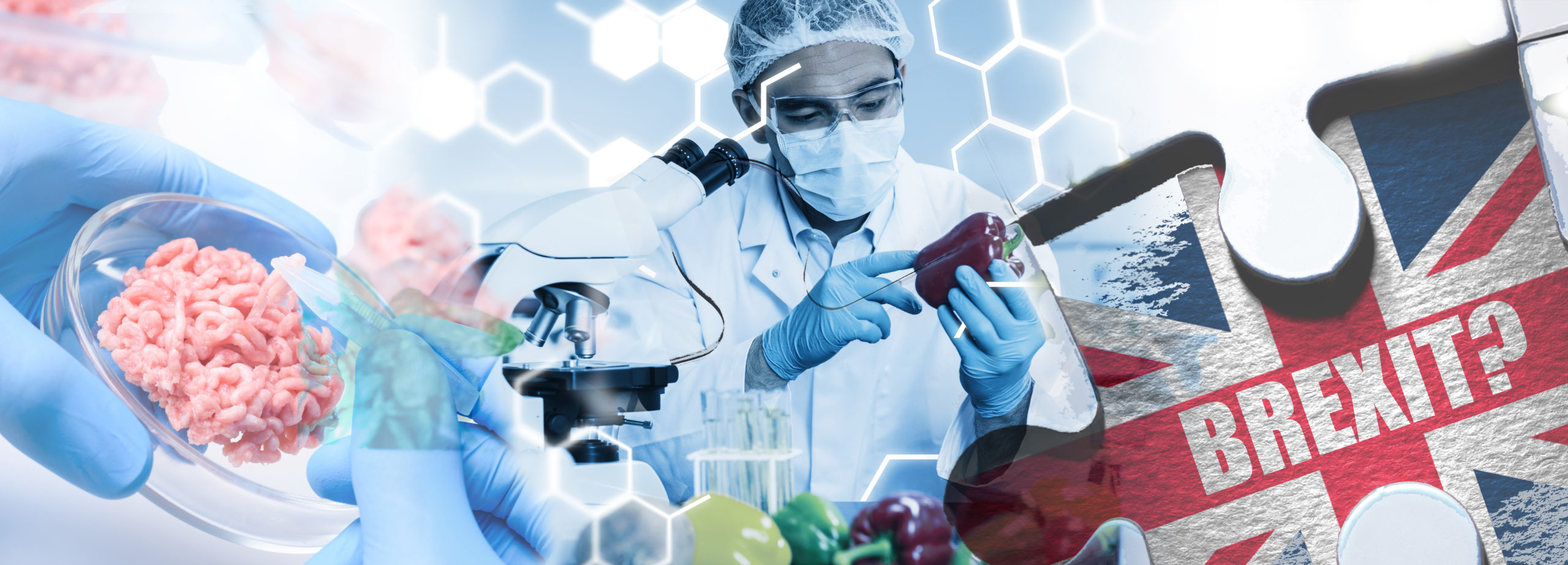
EU Food Regulation: Hot topics in 2019
These are times of high uncertainty on the business front. From the ever tedious EU and UK Brexit deal, to the fragile truce in US and China trading relations, there are hurdles at every corner. It is also a complex picture from a policy perspective, where central themes to look out for in 2019 include potential food legislation changes that may follow Brexit, the need for further harmonization of EU food policy and first experiences under the new Novel Foods regulation. Dr. Elinor McCartney, President of the Spanish-based food chain regulatory consultancy, Pen & Tec Consulting Group, spoke with The World of Food Ingredients in a wide ranging interview on the current EU regulatory environment.

Public given access to EFSA scientific data
Last week, it was announced that EFSA will begin sharing the scientific data it uses for EU-wide monitoring programmes and surveys, as well as data used for risk assessments. The announcement comes after discussions regarding EFSA’s desire to improve its transparency with applicants and stakeholders, and to widen their evidence base.

Could Brexit mean CRISPR? EU departure presents the UK with a food policy overhaul opportunity
Brexit could present the UK with a unique opportunity to modernize its food regulations, but it should tread carefully in order to remain compliant with EU standards, or risk alienating its own GMO skeptical domestic consumer market. This is according to Dr. Elinor McCartney, President of Pen & Tec Consulting Group, who spoke to FoodIngredientsFirst in a extensive interview on the current EU regulatory environment.
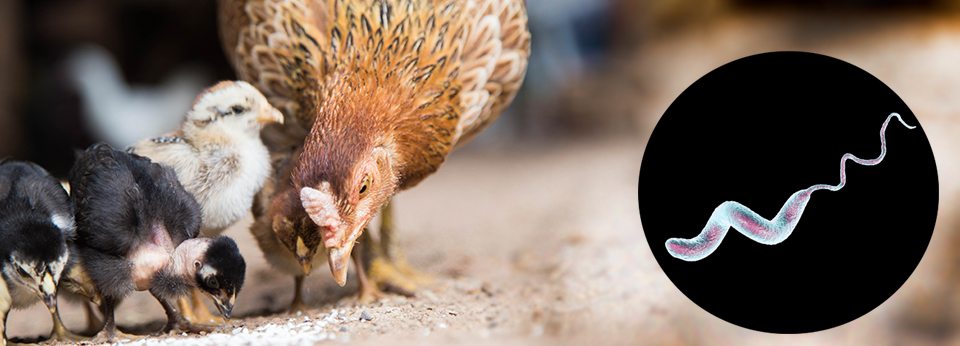
Evaluation of in-field efficacy of dietary ferric tyrosine on performance, intestinal health and meat quality of broiler chickens exposed to natural Campylobacter jejuni challenge
Pen & Tec experts have collaborated on and are happy to share with you the following study which examined the effect of a novel feed additive to reduce Campylobacter jejuni populations and to improve growth performance of broiler chickens.

EFSA implements new measures to improve transparency standards of communication with applicants
From 1 January 2019, EFSA has decided to adopt new measures to improve transparency between themselves and applicants during the risk assessment and evaluation of regulated products such as feed additives and novel foods.

Probiotics used in traditional fermented foods: Traditional or novel?
Can probiotics – intended to be marketed as food in the EU – be considered as traditional and not novel foods?
In short, not exactly, and to answer these questions, there are at least two main aspects to consider, which all determine the level of information required by the European Food and Safety Authority (EFSA) for the evaluation of safety of a novel food prior entry to the EU market.

FDA drastically affected by US government shutdown. What does this mean for GRAS notices and food additive petitions?
The partial US federal government shutdown that began on Saturday 22 December 2018 is having a noticeable impact on the activities of the Food and Drug Administration (FDA).
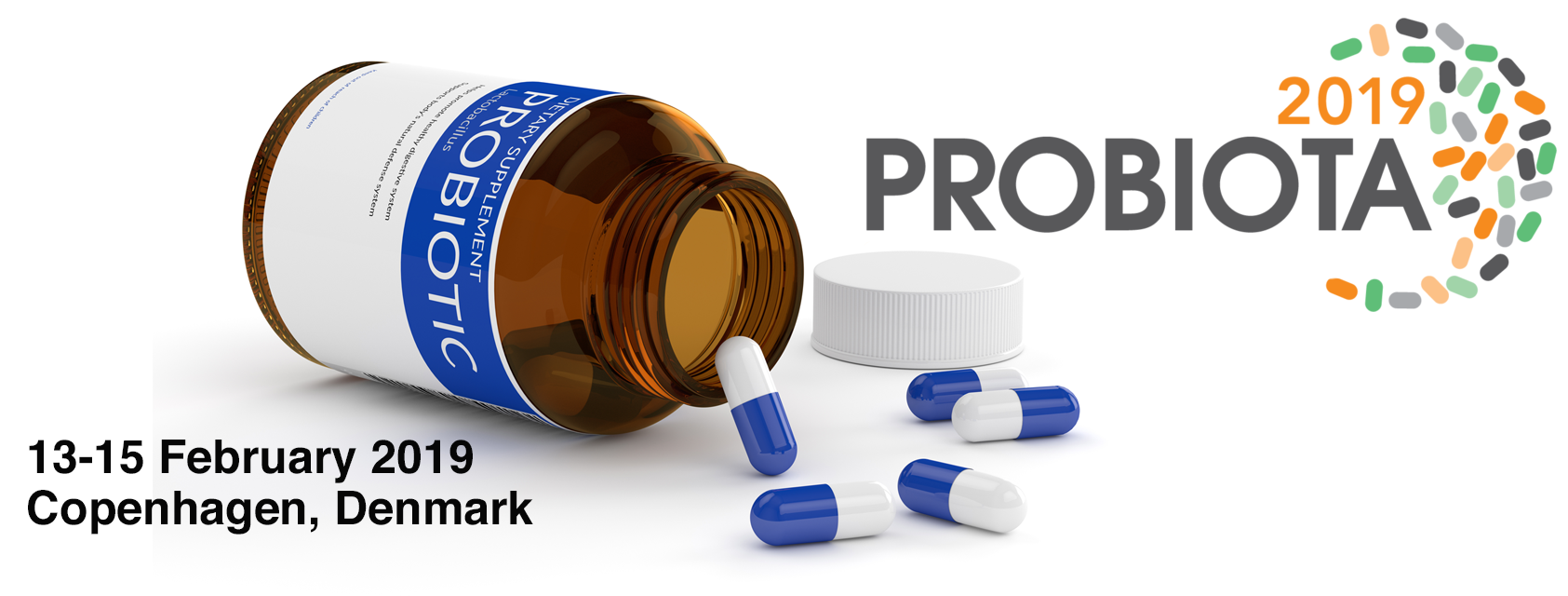
Probiota 2019: safety and health claims
Probiota 2019: 3-day event consists of interesting conferences, debates and discussions regarding current topics and upcoming changes to the prebiotic, probiotic and microbiome fields.
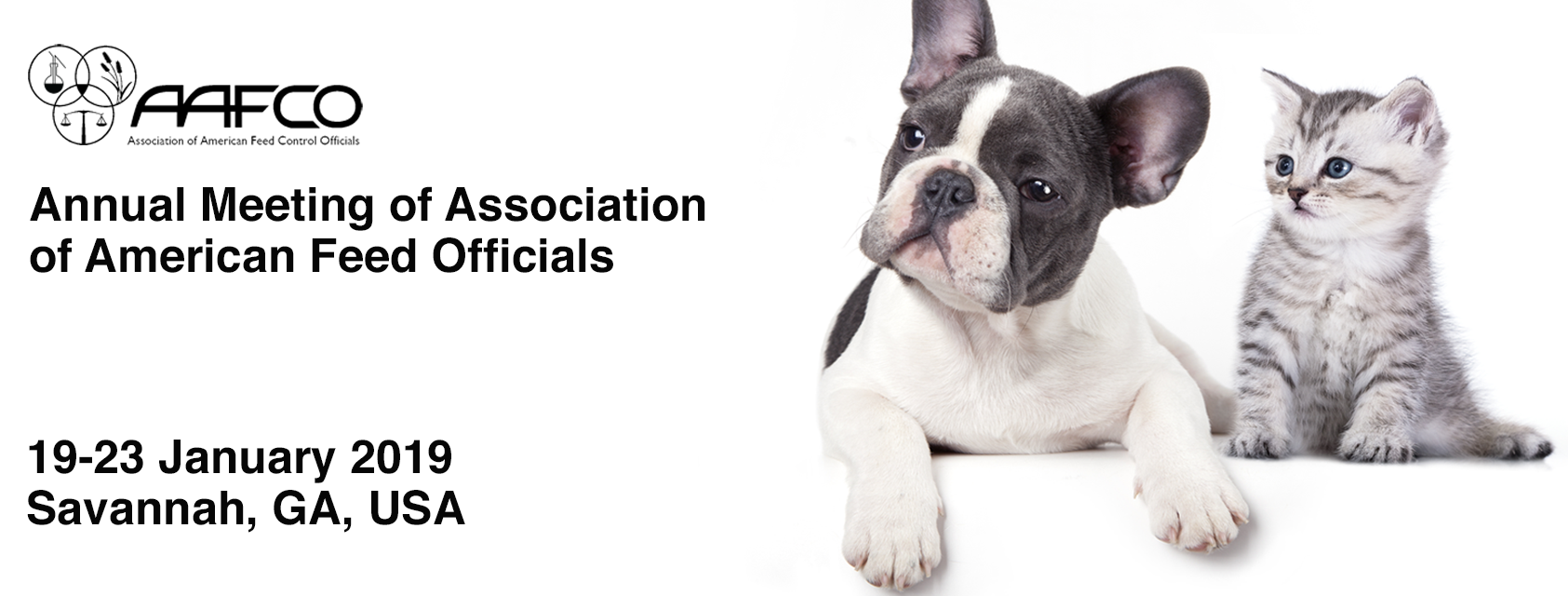
Meet us at the Annual Meeting of Association of American Feed Officials
AAFCO holds an annual meeting to enable control officials and individuals from the animal food industry to better understand and interpret the regulations on 19-23 January 2019.

Are the new novel food rules living up to their promise?
Europe introduced new novel food regulation at the beginning of 2018, intended to simplify procedures for food companies introducing new foods and ingredients in the region. Nearly a year on, is reality living up to the promise?

Probiotics and prebiotics in infant formula: regulatory status and innovation
EFSA has repeatedly expressed an insufficient characterisation of the microorganisms and a weak correlation between their consumption and the claimed effect. So far, the authorities have not approved any claim on probiotics.
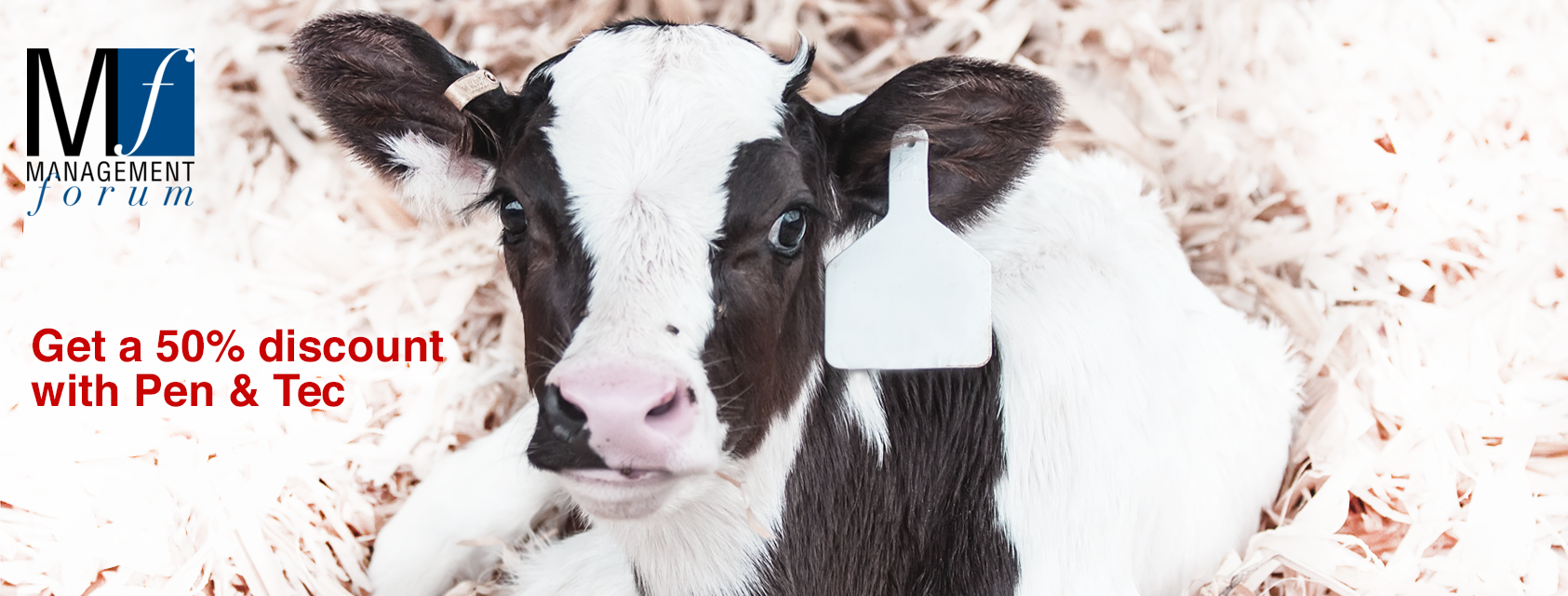
Join us for a two-day interactive course on regulatory updates on animal feed and feed additives in the EU, USA and China
The selection of regulatory affairs courses will discuss updates on the data requirements and EU legislations for animal feed and feed additive products, with expert speakers explaining how these products can attain approval in the US and Chinese markets (or vice versa).

Species extension for existing feed additive authorisations: Updated EFSA guidance brings great advantages to companies
At Pen & Tec, we are offering companies species extension bundles, where we can help you to extend your current feed additive authorisation to other target species. In order to take advantage of the species extension, companies can use their existing data to apply for an update to their existing authorisation.
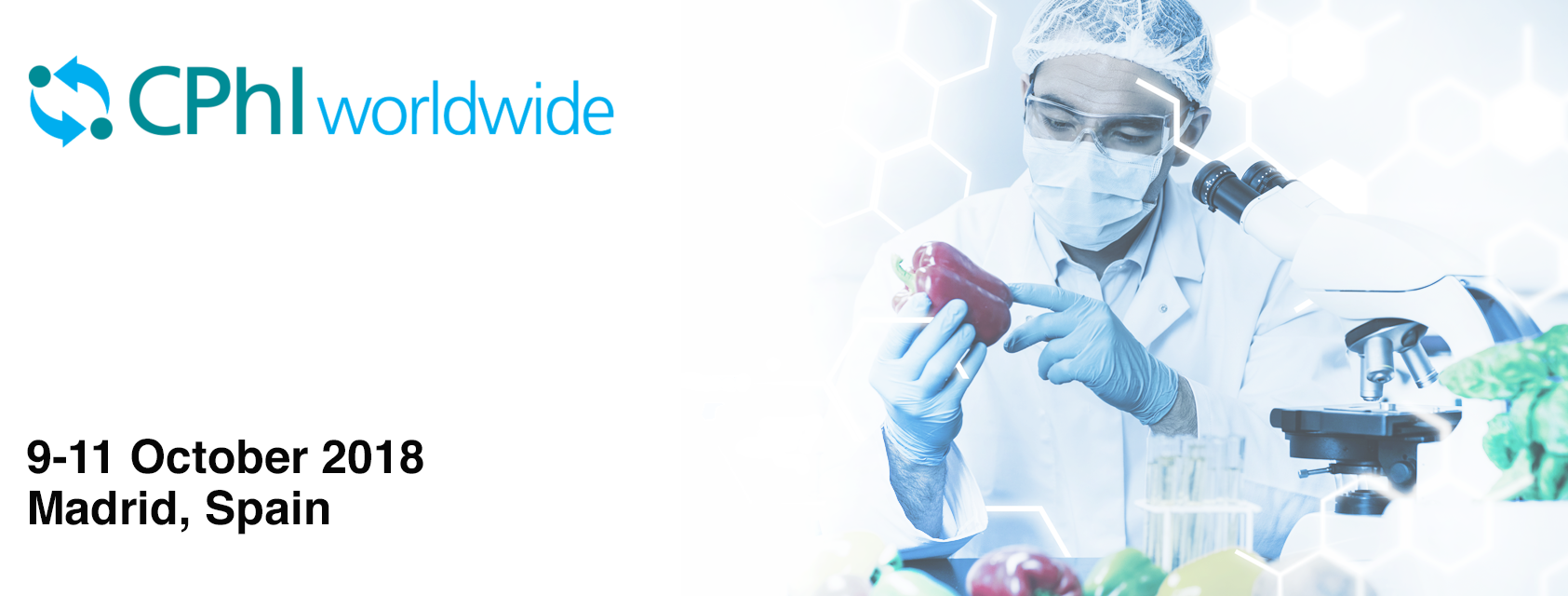
CPhI Worldwide 2018 event – join the pharmaceutical world
We are happy to announce that Pen & Tec Consulting will be attending the CPhI Worldwide 2018 event on 9 – 11 October in Madrid.

BREXIT – regulating through uncertainty
The outcome of Brexit negotiations will require fundamental changes to the UK’s legal and regulatory landscape in the long term. Companies are finding it difficult to take key decisions today, and to plan for the future. What should you be doing to keep your business on track and to best protect the interests of your company, the industry and your customers?

Feed additive dossier renewals: Don’t get caught short!
Is your product approaching its 9th year on the market? Are you unsure of the next step? Pen & Tec is here to help you!

EFSA update on nanoscience and nanotechnologies in the food and feed chain
European Food Safety Authority published Part 1 of a revised guidance on the safety requirements for human and animal health aspects of the risk assessment of nanoscience and nanotechnologies. The updated guidance takes into account recent developments and advances and provides a structured approach and an overview of the studies required to perform a safety assessment of nanomaterials used in food and feed.

Novel foods – the cost of getting it wrong!
The European Commission recently asked EU Member States, Norway and Switzerland to take part in a voluntary investigation to look at food products offered online. The results show that many non-compliant novel food products or food supplements bearing non-compliant claims are being sold online.

We invite you to take part in our webinar on Feed Additive Efficacy with Dr Elinor McCartney
Pen & Tec together with The Organisation for Professionals in Regulatory Affairs (TOPRA) will be delivering a webinar on 6 August 2018 (12 noon – 1pm (BST)).

The online revolution: How social ‘influencers’ and digital technologies are driving changes in marketing
New digital technologies, the rise of bloggers and social influencers, and ever-evolving consumer demographics are driving huge changes in the way nutrition products are bought, sold and marketed, say experts ahead of Vitafoods Europe.

Exploring European trends at Vitafoods Europe
The world of nutrition changes quickly and an understanding of key consumer trends, as well as new opportunities constantly being created by science and technology, can be the key to business success.

The generation game: How are consumer demographicschanging nutraceutical marketing?
Shifting consumer demographics are revolutionising the way nutrition products are bought, sold and marketed, say experts ahead of Vitafoods Europe.
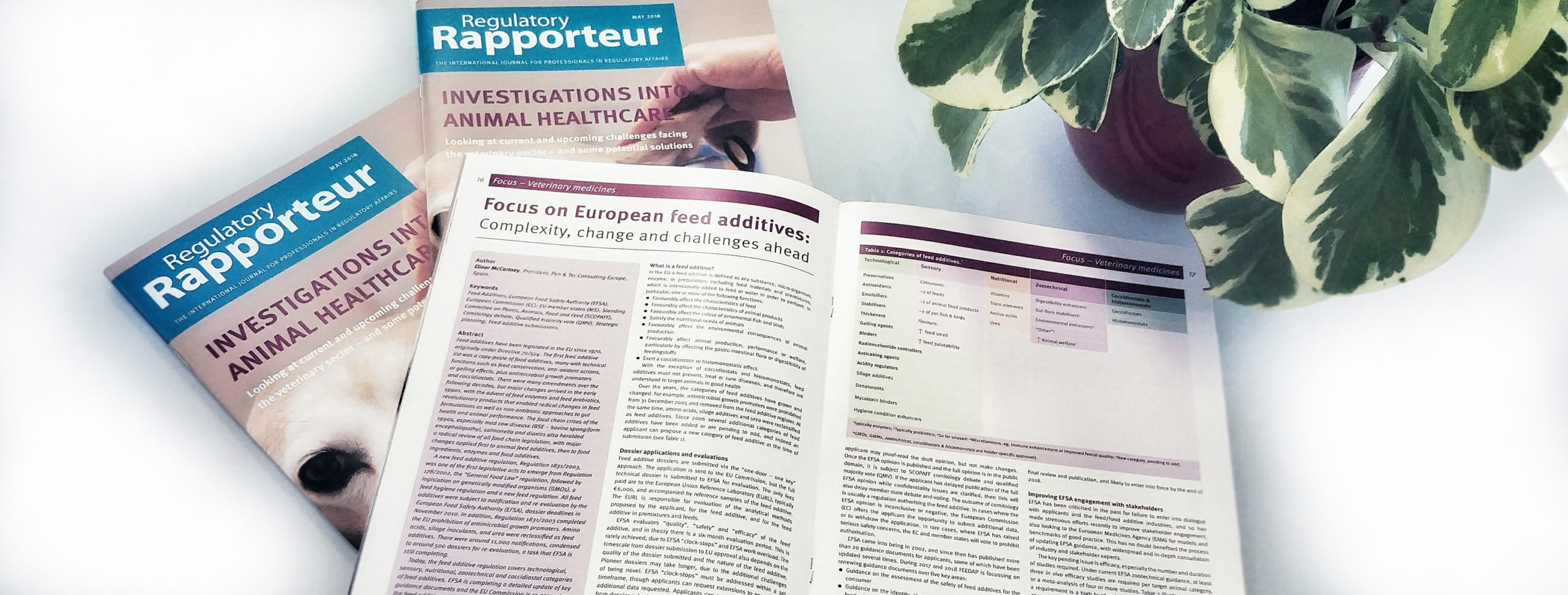
Focus on European feed additives: Complexity, change and challenges ahead
Dr Elinor McCartney explains the opportunities and challenges faced by applicants during the EU feed additive authorisation procedure in her article for the The Organisation for Professionals in Regulatory Affairs.

Effect of the butyric acid producing strain Clostridium butyricum MIYAIRI588 on broiler and piglet zootechnical performance and prevention of necrotic enteritis
We are happy to share with you the latest scientific manuscript co-authored by Dr Elinor McCartney published in Animal Science Journal.

Future-gazing with Vitafoods Europe
The world of nutrition changes quickly and an understanding of key consumer trends, as well as the new opportunities constantly being created by science and technology, can be key to business success.

Probiotic claims on the horizon – so long as new EFSA dossiers keep it simple, say regulatory experts
Companies keen to do the so-far impossible – gain an EFSA approved health claim – should hold off on applications for now, and ensure new dossiers are kept simple in the future, regulatory experts told delegates at the recent IPA World Congress + Probiota 2018.
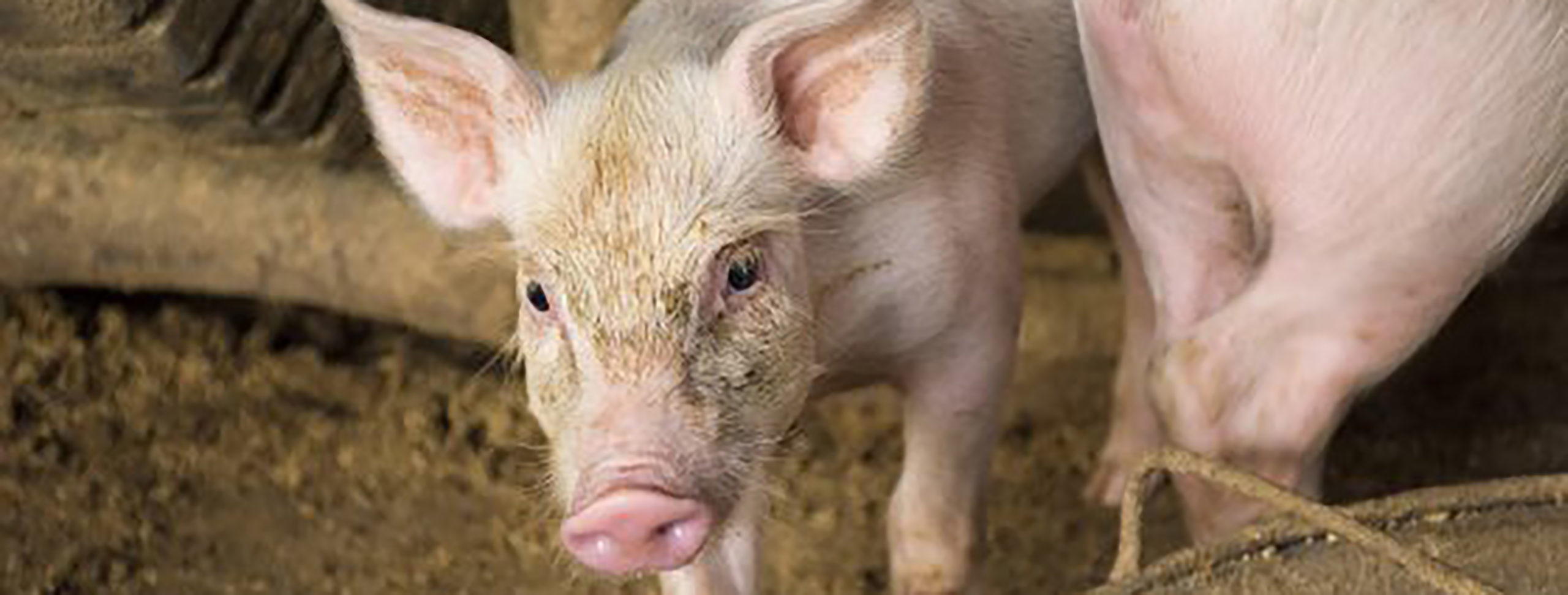
The genius who solved the porcine ileitis puzzle – Dr McCartney pays tribute to her PhD mentor and her Edinburgh veterinary roots
Ever wondered why ileitis in pigs is caused by a bacteria called ‘Lawsonia’? That is because the pathogen was first described by the Scottish veterinary researcher, Dr Gordon Lawson. Sadly he passed away early 2018 – reason to look back and reflect.
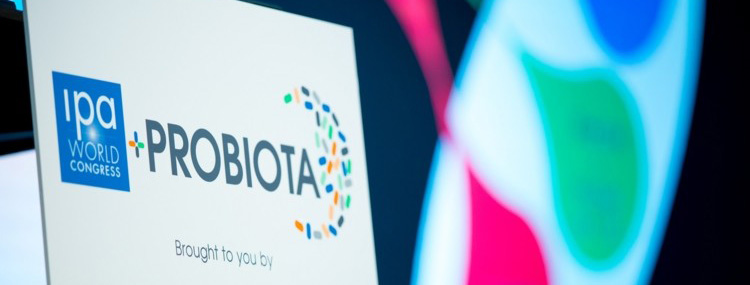
Consumer acceptance: Novel probiotics are beneficial, but the food industry is ‘its own worst enemy’ on GM technologies
Efforts to mine for hugely beneficial new strains of probiotics are gaining momentum across the globe, but the food industry is its own worst enemy when it comes to aiding consumer acceptance of new technologies, according to experts at the recent IPA World Congress + Probiota 2018.

Regulation frustration: One in three industry professionals finds EU framework unhelpful
The number of nutrition industry professionals who find the EU regulatory framework unhelpful has risen sharply over the past year, research shows. Experts believe dissatisfaction has risen because of the EU’s tough stance on health claims and the continuing regulatory deadlock on botanicals.

Centralised EU Novel Foods Regulation kicks in, but will it inspire more applications?
The new regulations on novel foods, defined as anything without a significant history of consumption in the European Union before May 15, 1997, came into force on January 1, 2018, signalling the start of a new system operated by the European Commission.

An update on the EU novel food authorisation procedure
Just before the end of 2017, the European Commission published the long-awaited Union list of novel foods allowing food business operators (FBOs) to sell any of the 125 approved novel plants, extracts, microorganisms, vitamins, minerals, etc. in the European Union without undergoing a pre-registration assessment.

Enterococcus faecium as probiotic – is it safe? Views from Taiwan, USA and EU
Concerns over the safety of E. faecium for use as a probiotic food supplement have been raised due to the propensity of this microbe to develop and acquire AMR, especially to vancomycin and ampicillin. The US and Taiwan FDA (Food and Drug Administration) believe that, in general, AMR can be transferred from “wild-type” bacteria residing in the gut to probiotics in transit through the gut. Consequently, health authorities all over the world are closely monitoring the development of AMR, including the use of E. faecium as a probiotic in food and feed.

Probiotics as novel foods – global regulatory hurdles
While regulators strive to ensure a safe food chain from farm to fork, the regulatory systems relating to probiotics vary greatly around the world. So, what are the regulatory hurdles related to novel food probiotics and how should we approach them from an EU regulatory perspective?

The big question is the number of in vivo studies required to show efficacy
Efficacy is the main talking point as the EU Commission (EC) revises the EU feed additives regulation. That legislation (Regulation (EC) No 1831/2003) has not undergone an evaluation since its entry into force in October 2003. Elinor McCartney, president of food chain consultancy group, Pen & Tec, weighed in some of the outstanding issues.

Nutrition industry gives its verdict on new rules for novel foods
The new regulations on novel foods come into force on 1 January 2018. Many people working in the nutrition industry feel positive about the EU’s new process for the approval of novel foods, new research by the organisers of Vitafoods Europe shows. However, experts are warning that there could be adverse implications for some companies’ intellectual property portfolios.

An update on EFSA’s new guidance documents for feed additives
On 17 October 2017, the EFSA FEEDAP Panel published three new guidance documents to help applicants with the preparation of feed additive submissions. These guidance documents were adopted during the last FEEDAP plenary meeting in September 2017 and will enter into force on 1 May 2018.

EFSA launch public consultation on the draft guidance for the assessment of the efficacy of feed additives – 28th January deadline
EFSA has recently published the Draft Guidance for the Assessment of Efficacy of Feed Additives, which will be available for public consultation until the 28 January 2018.

EFSA publishes 3 new guidance documents for feed additives – Pen & Tec feedback taken on board
EFSA FEEDAP Panel published three new guidance documents to help applicants with the preparation of feed additive submissions and is also working on updating a fourth guidance (Guidance on the characterisation of microorganisms used as feed additives or as production organisms), expected to be adopted during the next FEEDAP meeting, scheduled in November 2017.

Top tips for achieving a feed additive approval – Q&A at Feed Additives 2017
Dr Hannah Lester was invited to moderate a Panel Discussion on “Sharing Experiences of Regulatory Processes and Policies” at the Feed Additives 2017 conference, with a focus on how applicants can work smarter and be more efficient during EU registration processes.
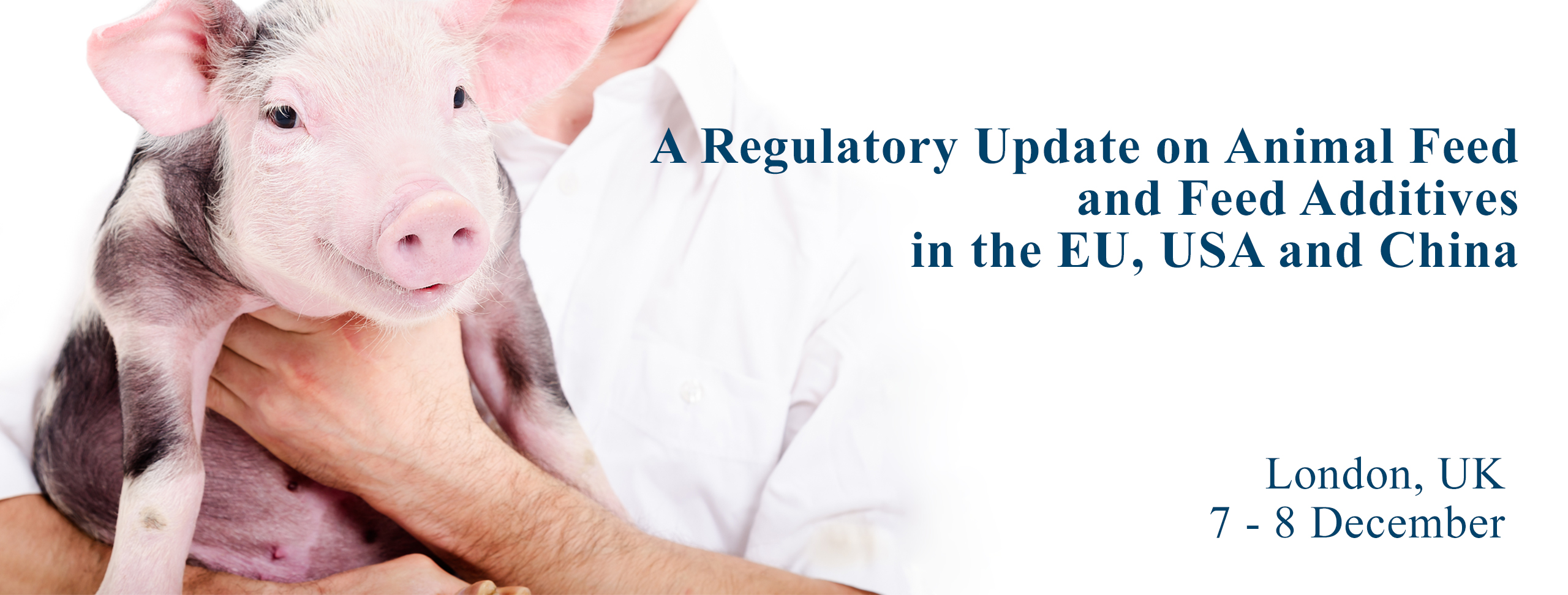
Two-day annual conference: A regulatory update on animal feed and feed additives in the EU, USA and China
Pen & Tec have joined forces with Management Forum to hold a conference on the legislation governing feed and feed additives in the EU, USA and China, with guest speakers including representatives of the EC, EFSA and the Animal Feed Unit of Spain’s Ministry of Agriculture.
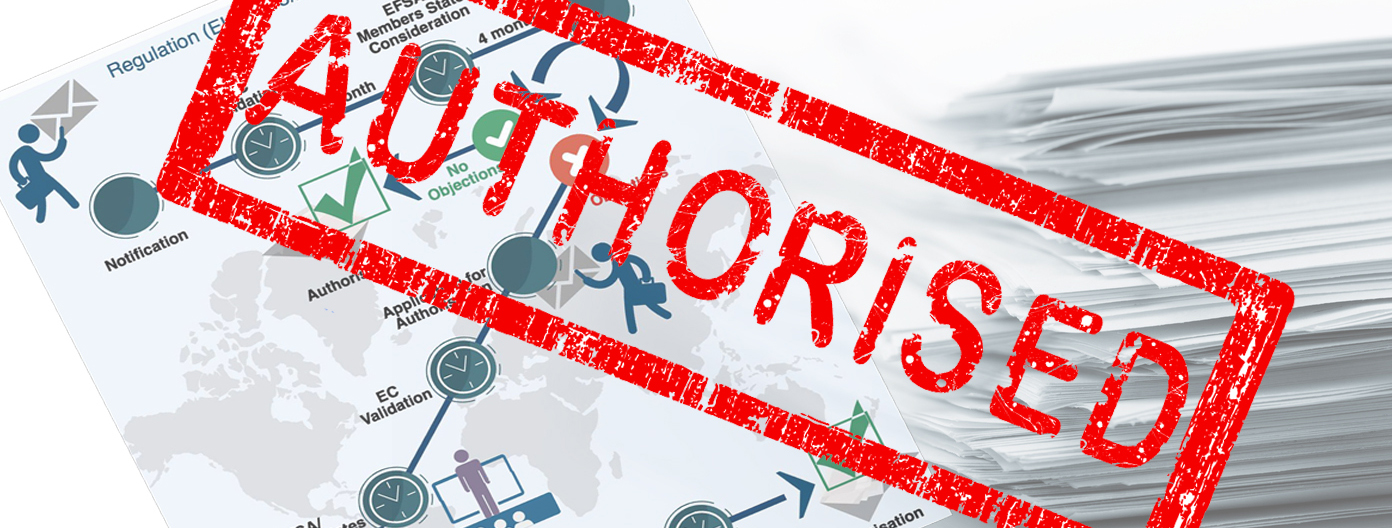
EU simplifies regulations for novel foods – Ing. Liza Van den Eede interview with Fi Europe 2017
New regulations for the approval of novel food come into effect in the EU on 1st January, 2018. What impact will this have on the industry and how will it affect new product development? Ing. Liza van den Eede from Pen & Tec Consulting will be at the Fi Europe Conference to clarify the new procedures and answer your questions about the new approval process.

EFSA drives initiatives on stakeholder engagement and insights on Brexit – Dr Elinor McCartney’s interview for Fi Europe 2017
Navigating the choppy waters of F&B regulations can be challenging, especially with pending changes in EU regulations and Brexit looming large. Regulatory experts Dr. Elinor McCartney will be at the Fi Europe Conference to share her expertise and answer your questions.

New challenges for novel food authorisations
New European rules intended to speed up and simplify introduction of novel foods continue to raise concern among companies about confidentiality and transitional measures, including that all authorisations will be generic rather than specific to the applicant. However, applications that are still ongoing by the beginning of 2018 will benefit from the five-year protection period as they can inform the authorities which studies are proprietary, if any.
